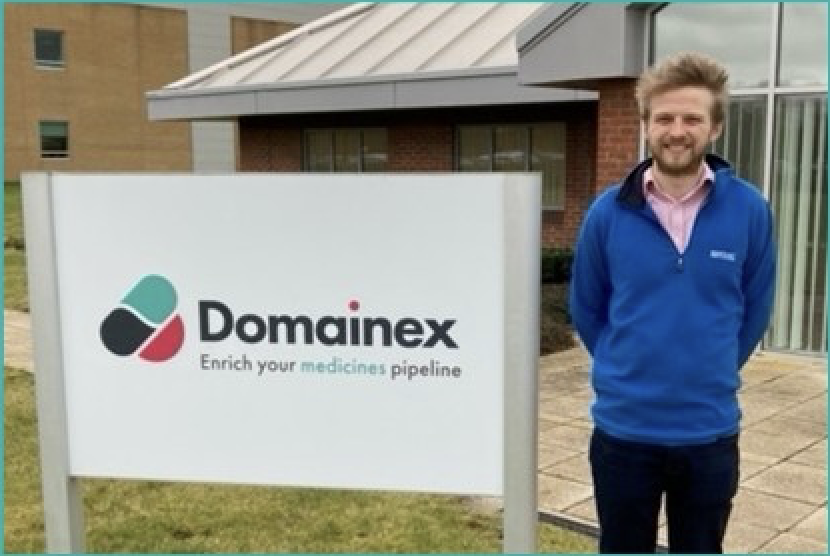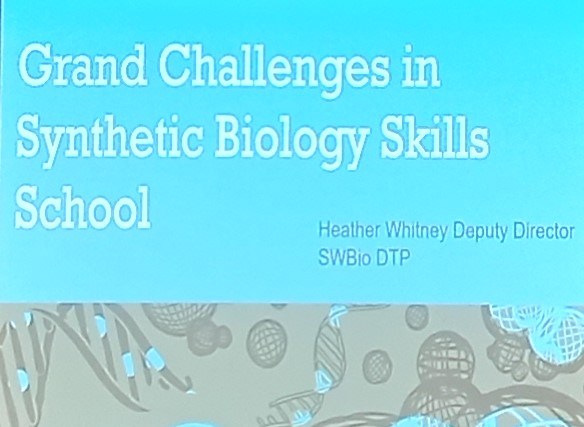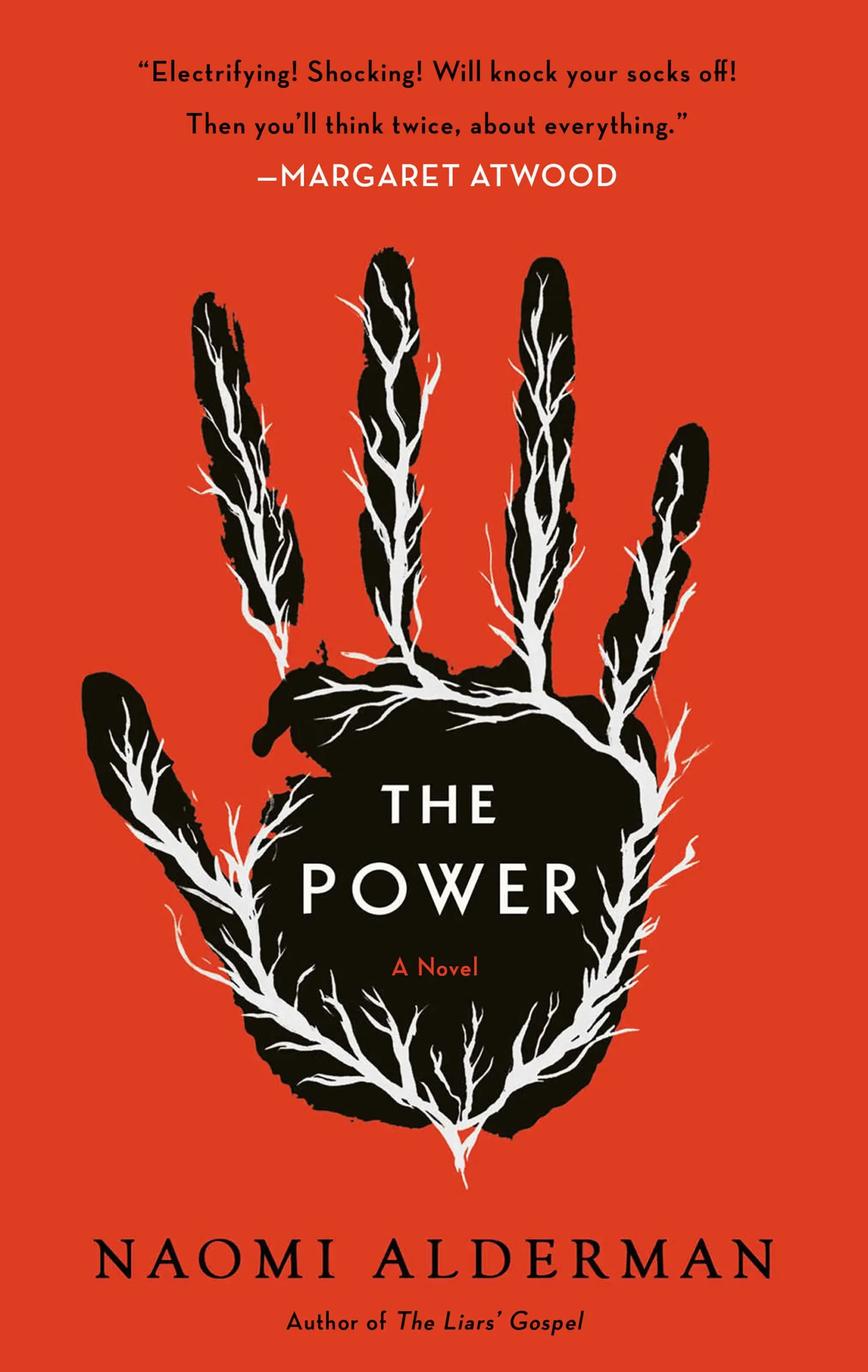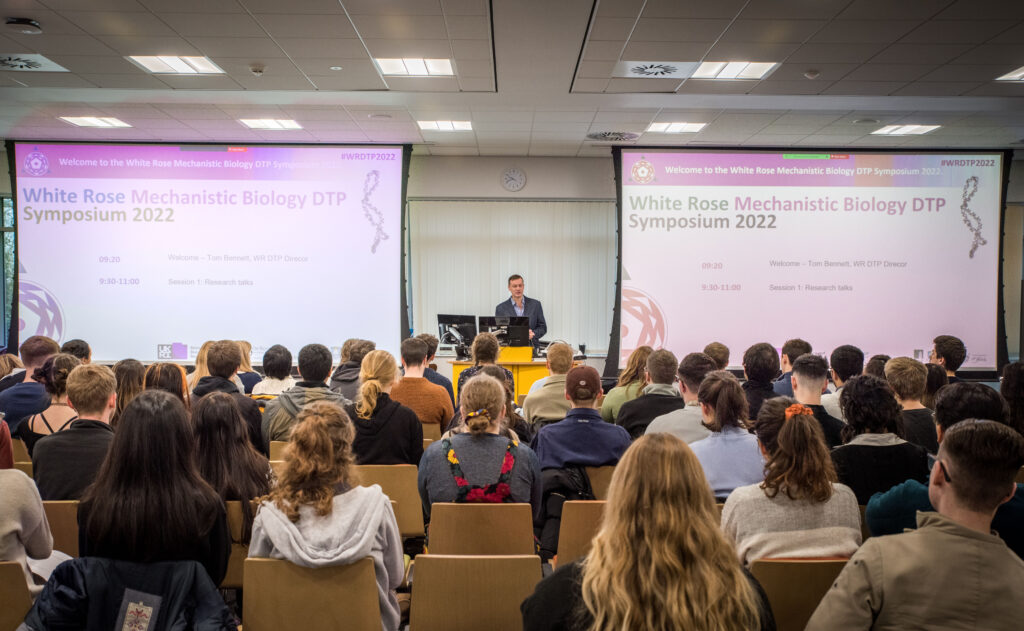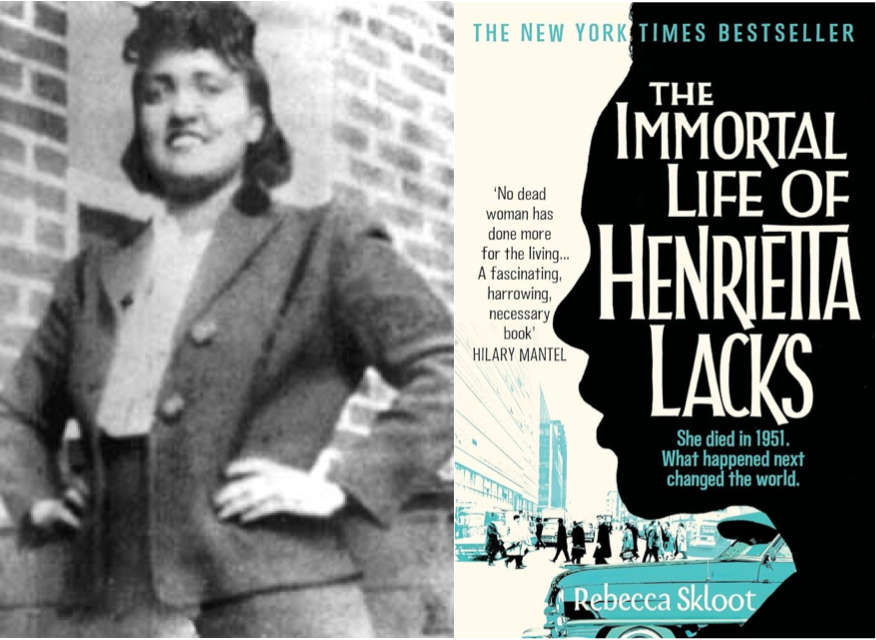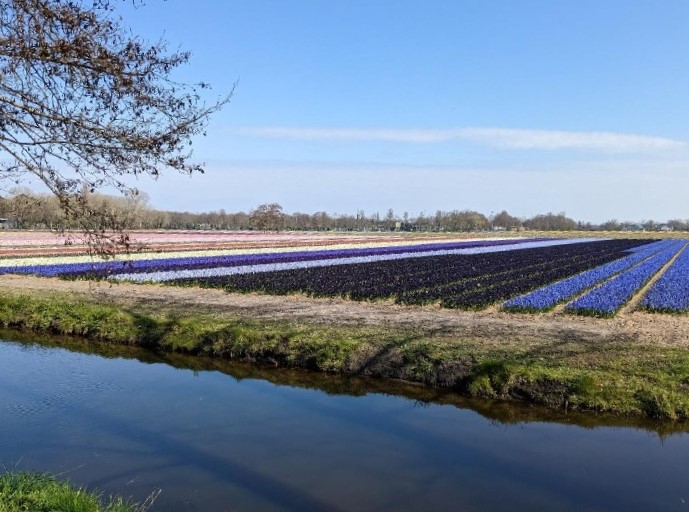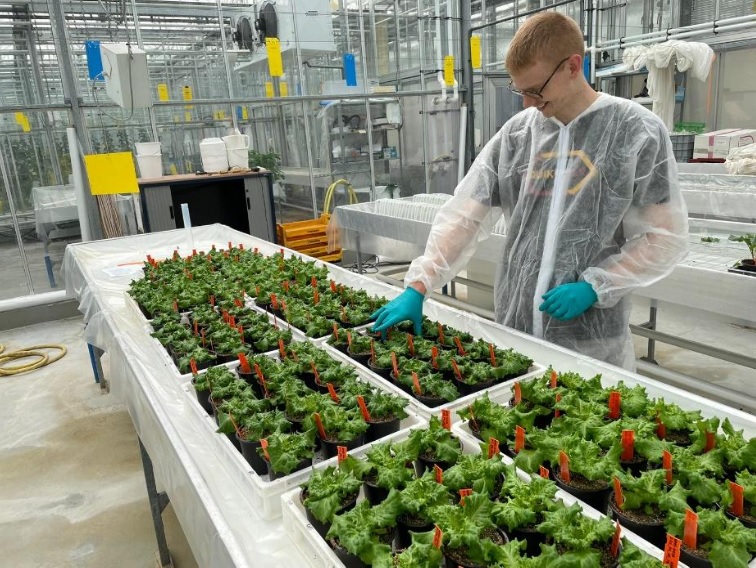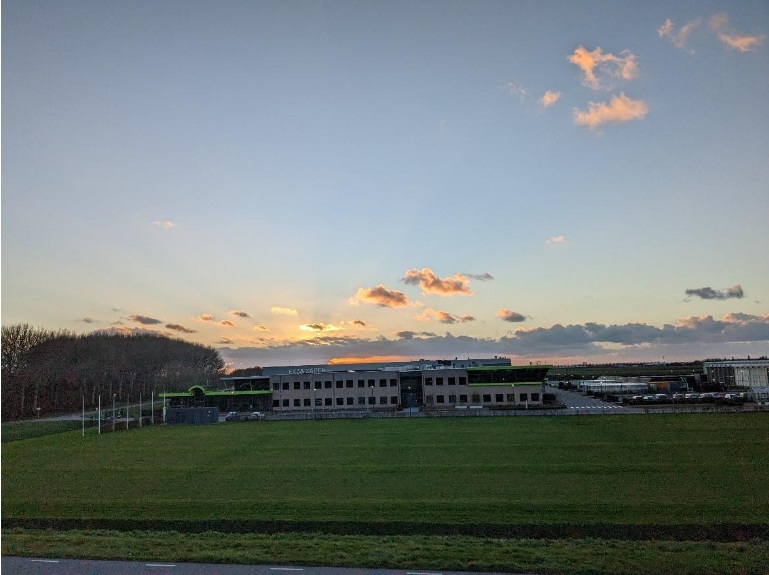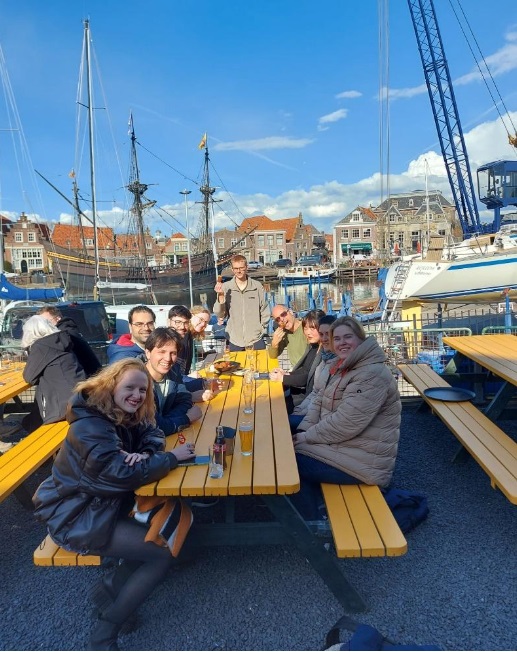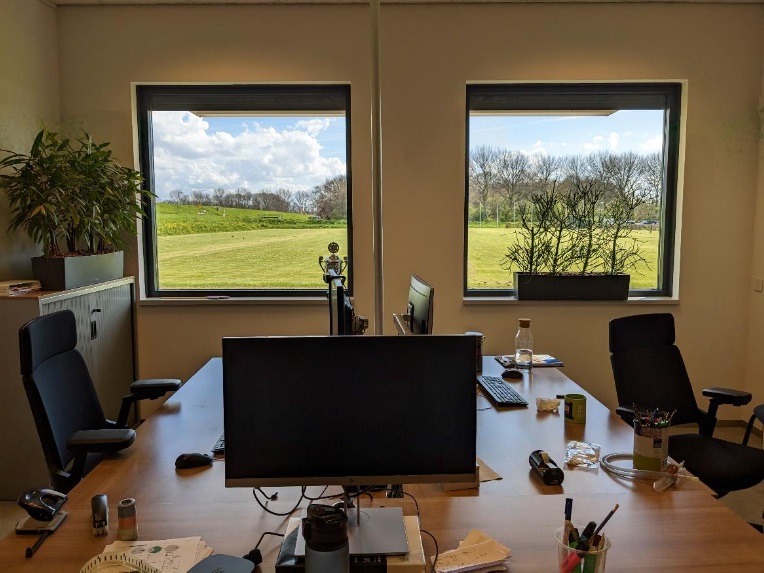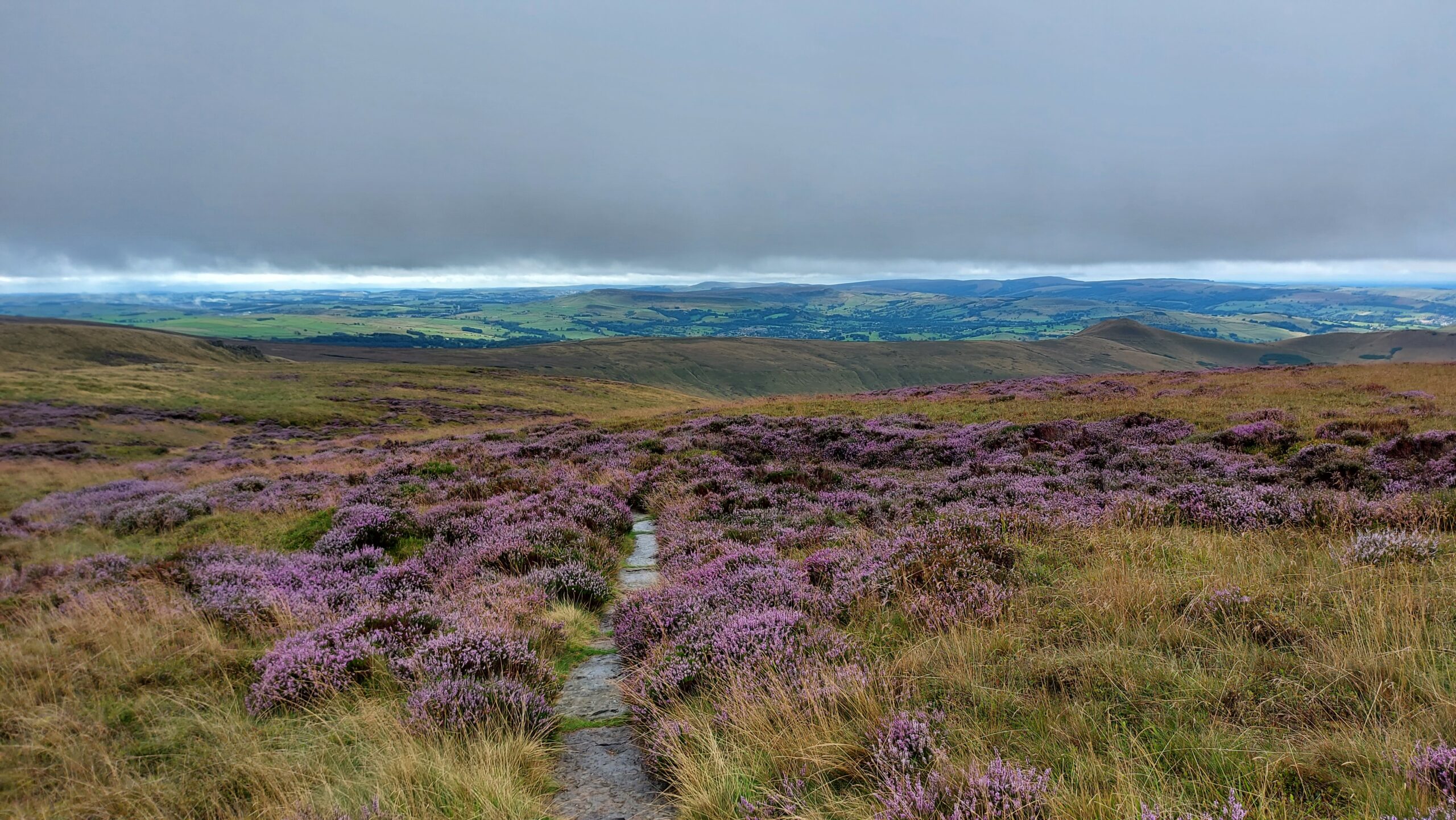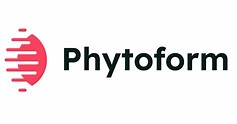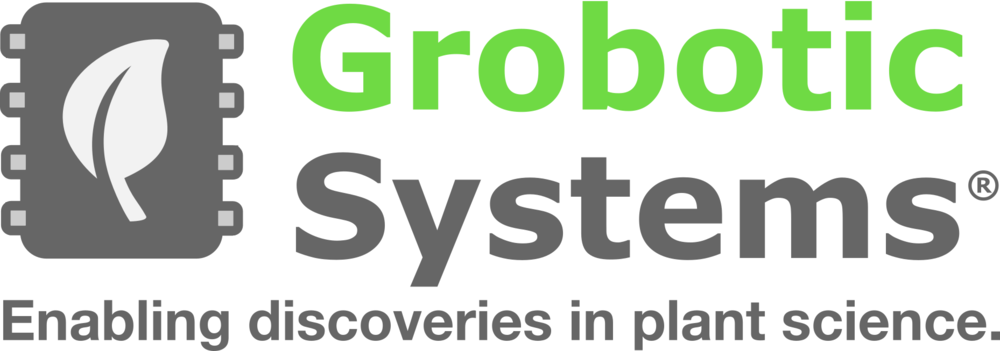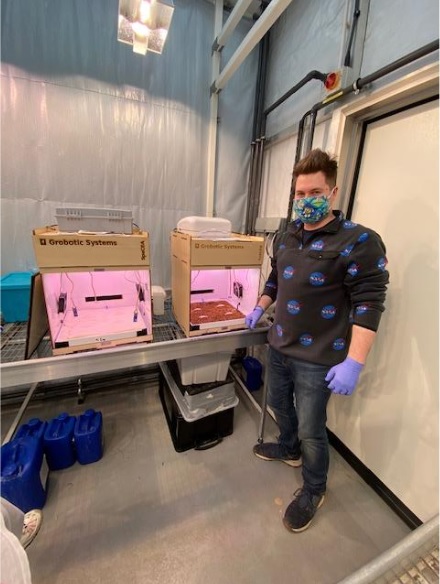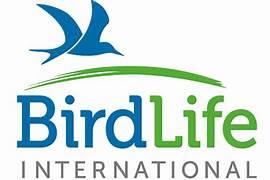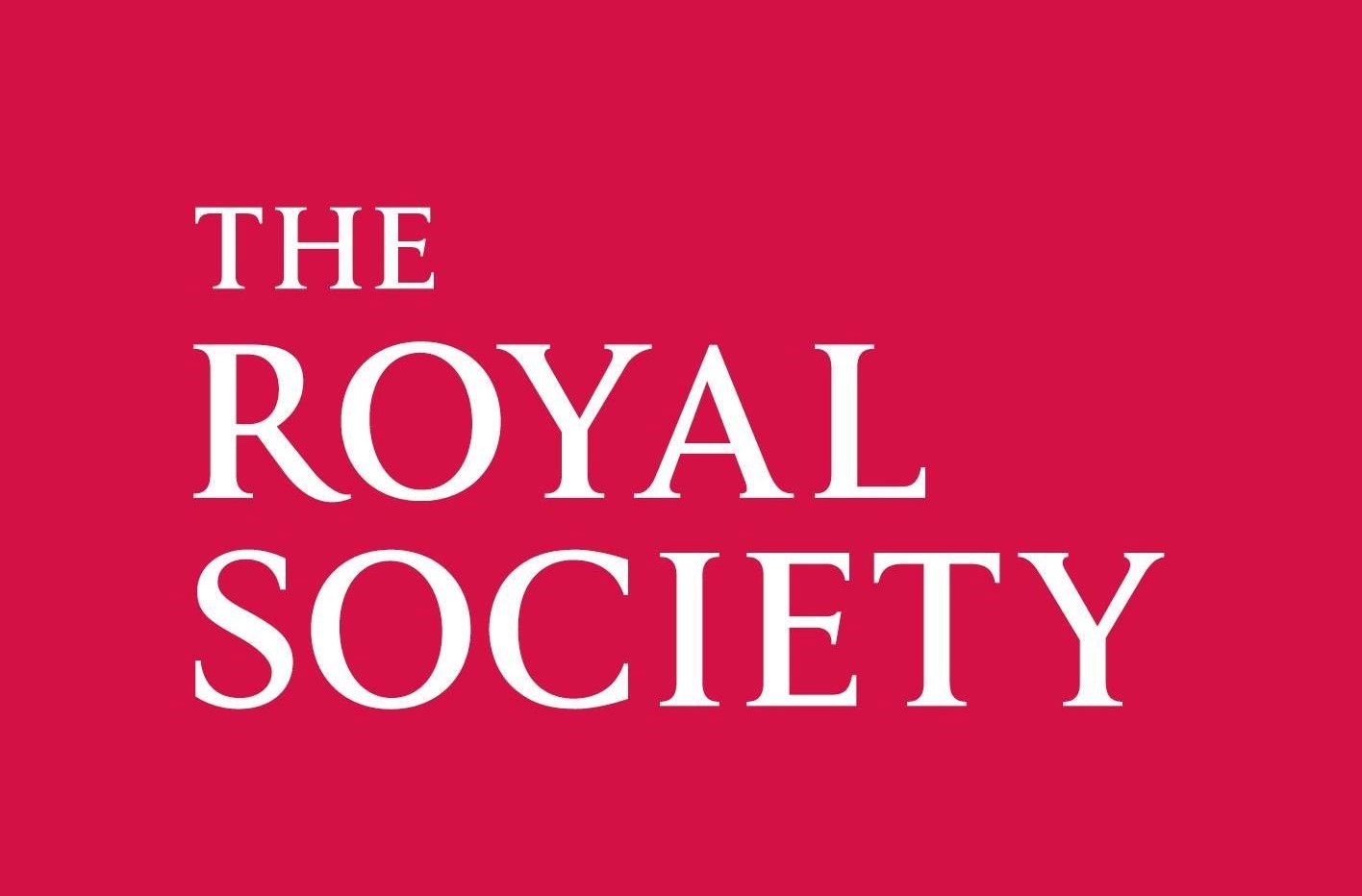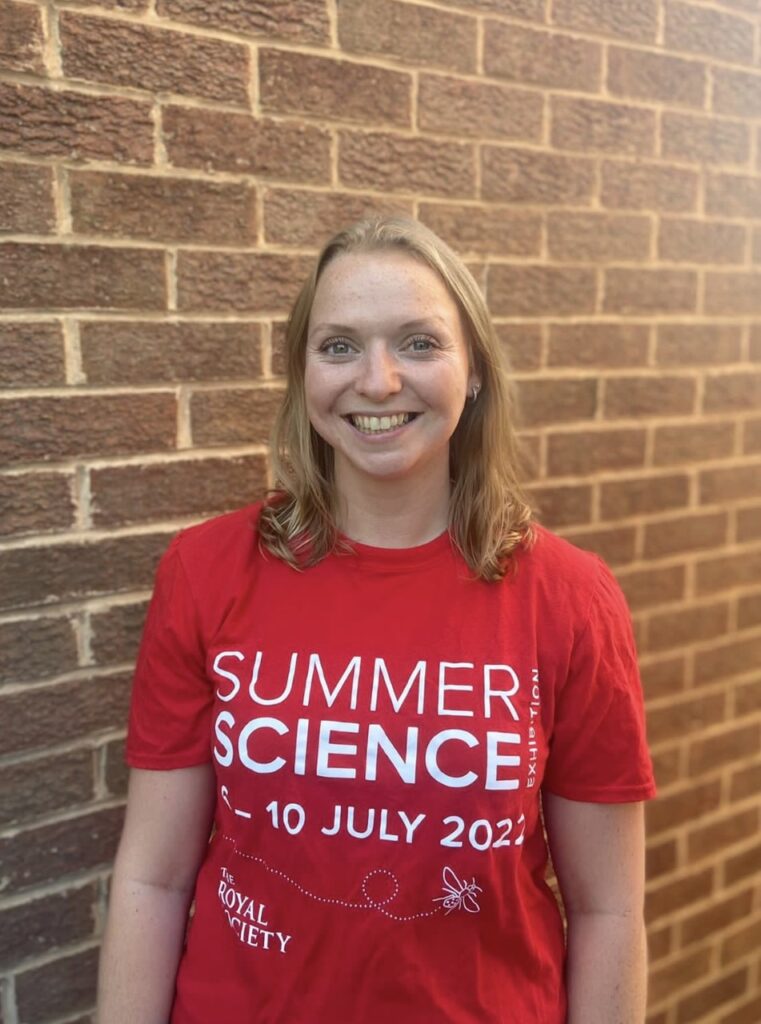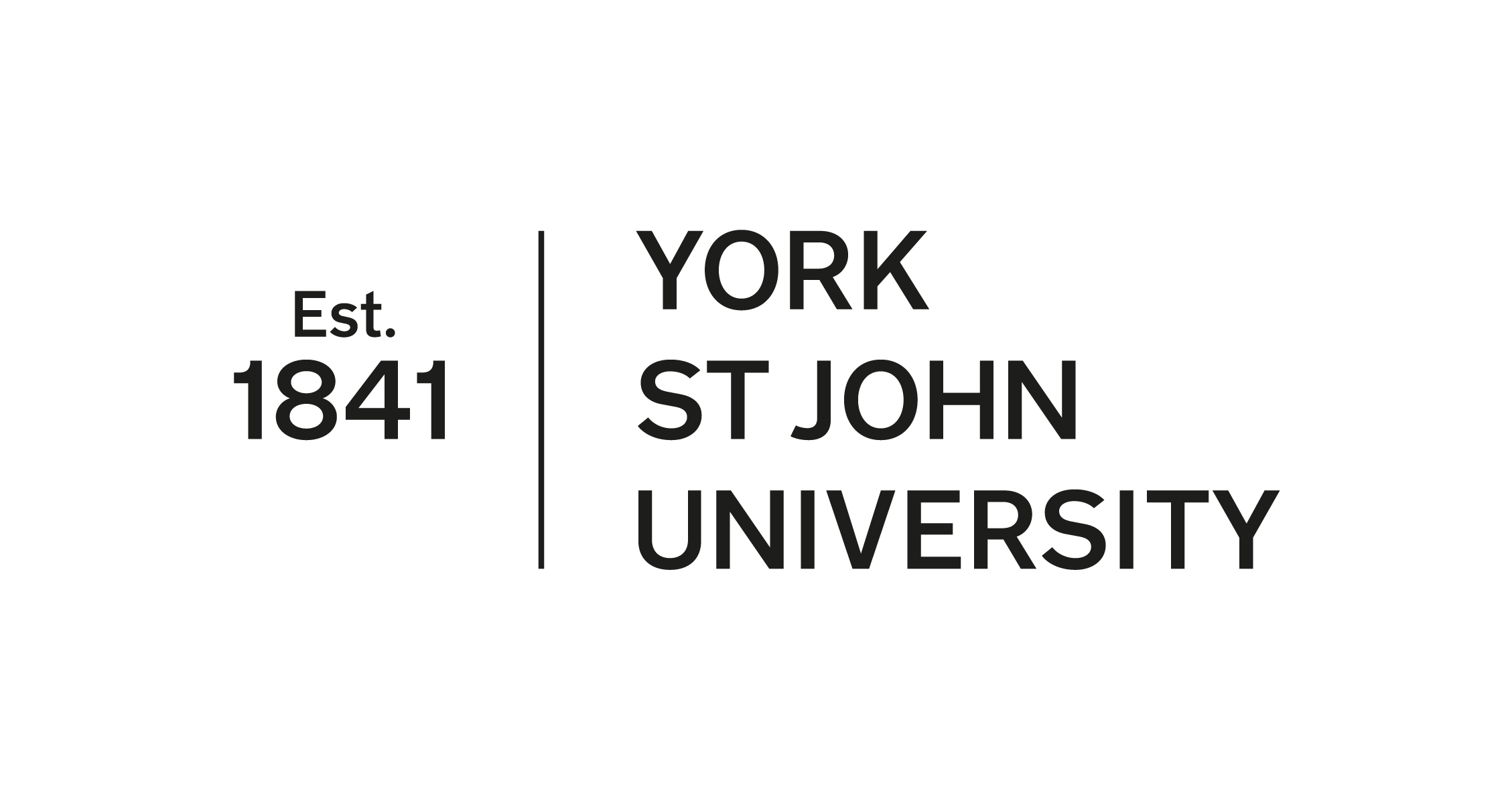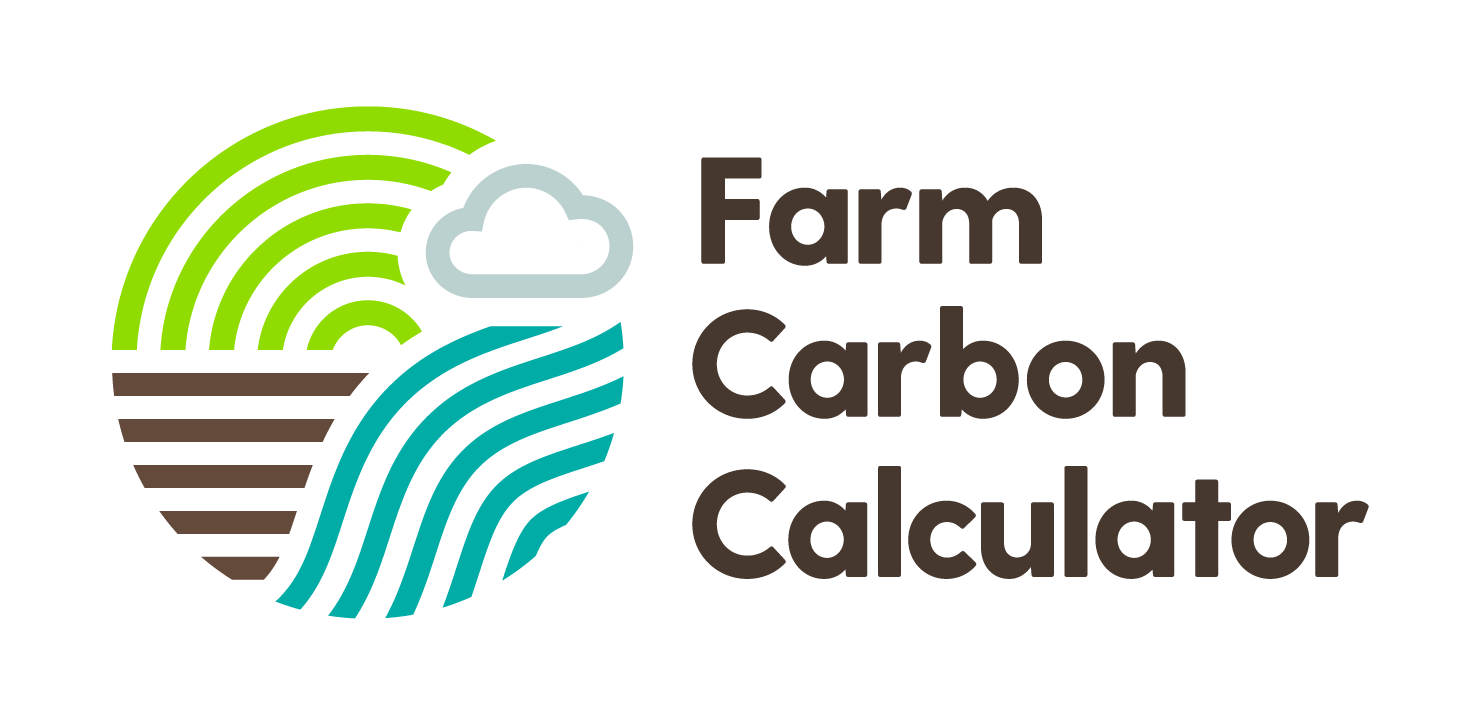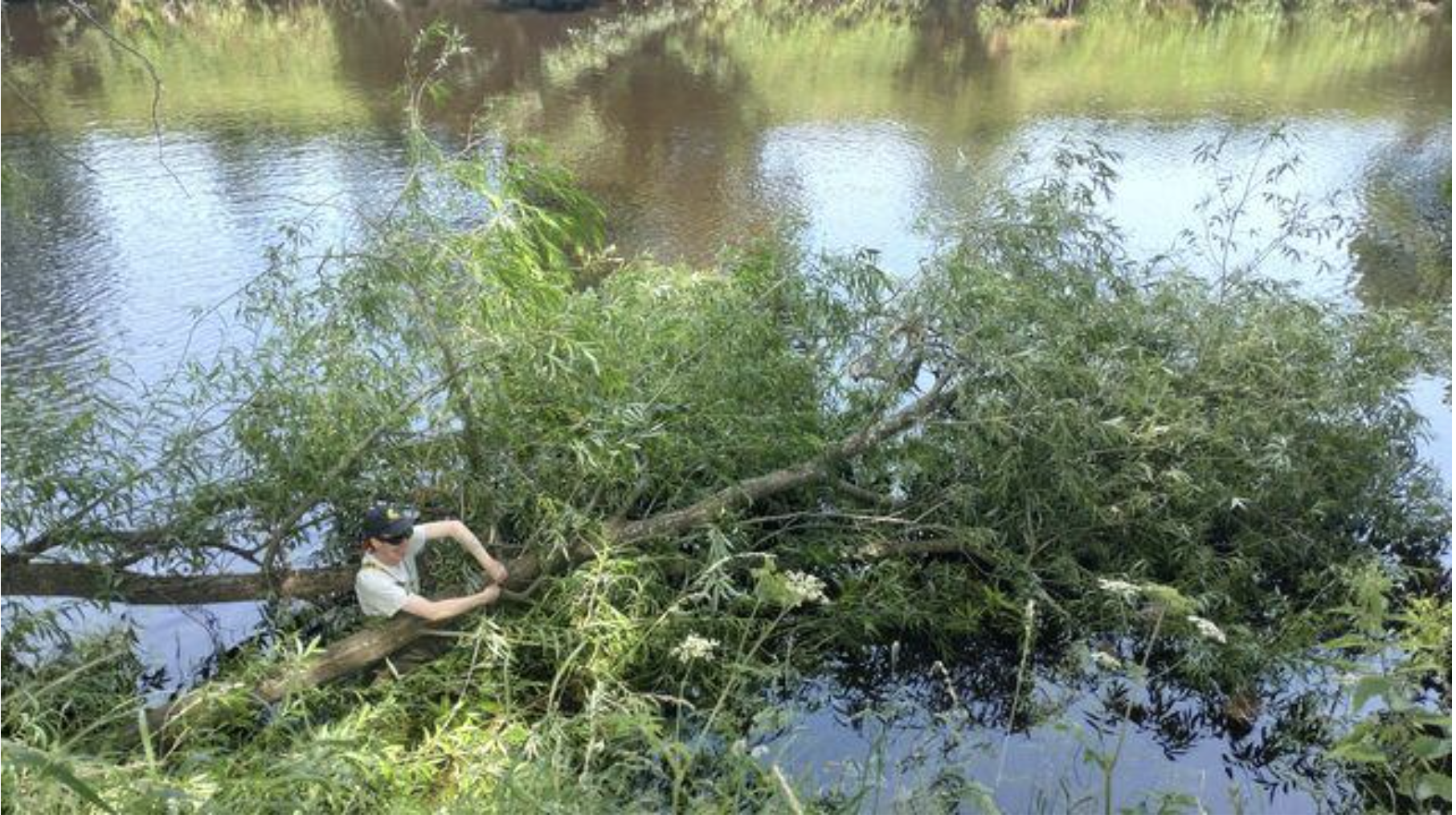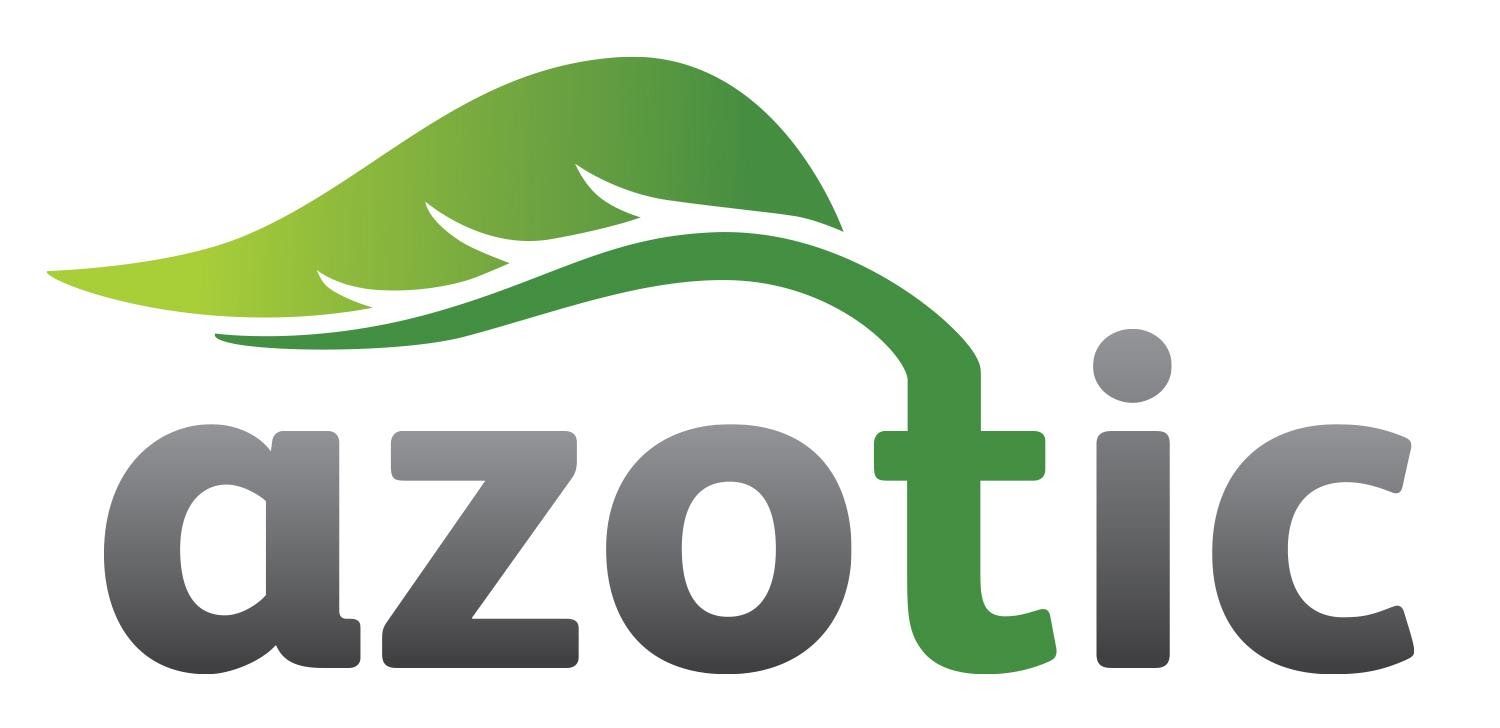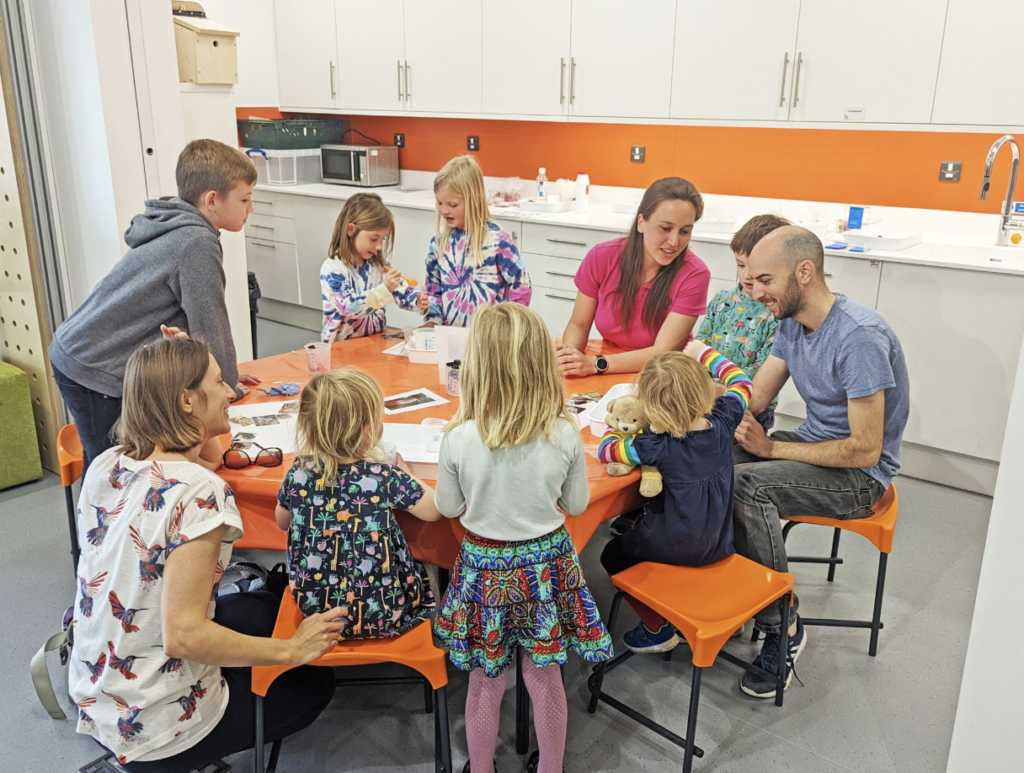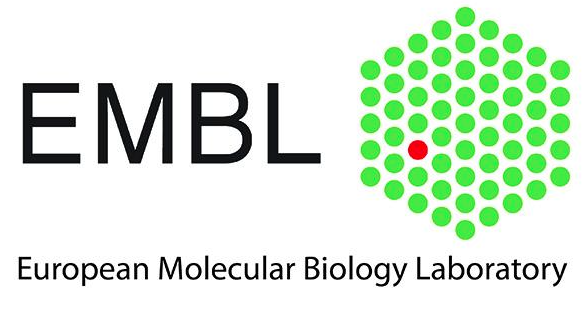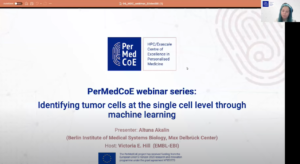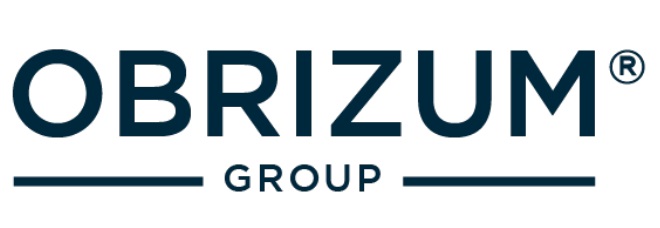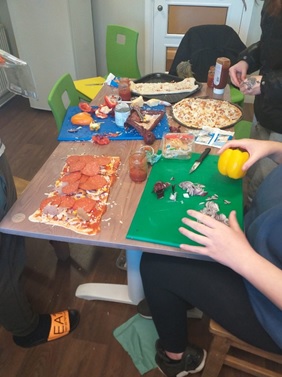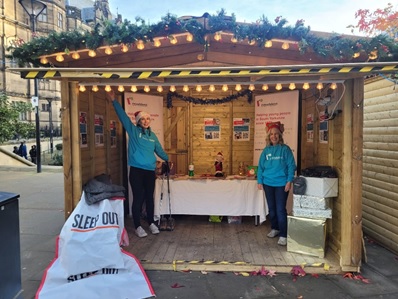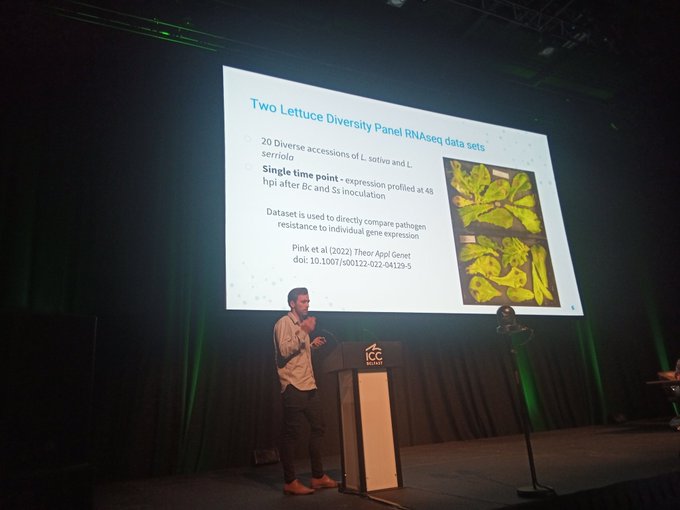Aiden spent 3 months at Domainex, a contract research company in the Cambridge area. This is a growing company of around 100 people across both chemistry and biology sites, largely conducting early-stage drug discovery for their clients.
Academy of Medical Sciences Grants and Programmes internship scheme – deadline 5th February 2024
The Academy of Medical Sciences Grants and Programmes internship scheme is now open for applications for internships beginning from March 2024.
More details can be found on the website and the application form can be found here.
Applications are welcomed for 3 month internships between March 2024 and January 2025. The scheme is open to BBSRC-funded PhD students through the PIPS scheme.
White Rose DTP students attend the Synthetic Biology Grand Challenge
Jack Stenning (University of York) and Andrew Cowan (University of Leeds) took part in the Grand Challenges in Synthetic Biology skills school this summer. This was a four-day residential event hosted by South West Biosciences DTP and funded by the BBSRC, held in Bristol. We interviewed them about their experience…
Read moreWhite Rose DTP students attend the Synthetic Biology Grand Challenge
The Power by Naomi Alderman
This book is an exploration of the capacity of power to corrupt. It is set in the 10 years following the moment that women gain the ability to release electric shocks from their hands, making them more physically powerful than men.
Careers spotlight – Ioannis Tsagakis, Journal editor
Meet Ioannis: Ioannis started his PhD at the University of Leeds in 2017 studying the molecular mechanisms of long non-coding RNA (lncRNA) function in X chromosome inactivation across mammalian gestation evolution (see more here). He is now working as an Editor for two scientific journals published by FEBS Press, Molecular Oncology and FEBS Open Bio. We asked him about his career and any advice that he has for current students …
Read moreCareers spotlight – Ioannis Tsagakis, Journal editor
Careers Spotlight – Andrew Stone, Light microscopy facility manager
Meet Andrew: Andrew started his PhD at the University of York in 2016 studying the heterogeneity of bone marrow stromal cells (see more here). He is now the manager of Brandeis University’s Light Microscopy Facility. We asked Andrew about his career and any advice that he has for current students…
Read moreCareers Spotlight – Andrew Stone, Light microscopy facility manager
Careers spotlight – Katie West, Post-doctoral research associate
Meet Katie: Katie started her PhD at the University of York in 2018 studying the role of non-coding RNAs in immunity (see more here). She is now a post-doctoral research associate in the Hitchcock lab at the University of York, funded by Blood Cancer UK. We asked Katie about her career and any advice that she has for current students …
Read moreCareers spotlight – Katie West, Post-doctoral research associate
Newsletter – Autumn 2023
Welcome to the Autumn edition of our newsletter! The aim of this newsletter is to keep you informed on upcoming events and opportunities, as well as to share with you the achievements of our students.
If you have any news items you wish to be included in future newsletters, please email them to a member of the comms team!
~~~
News
- Welcome to our new cohort of 2023 starters! We are so excited for you to be a part of the White Rose DTP, and look forward to seeing all that you accomplish.
- Symposium 2023
Registration for our Annual Symposium is now open! Attendance is compulsory for all students, except for those on placements. Any student on their PIPS or in their 5th year on extension is welcome to attend the symposium, however this is not mandatory.
This year the Symposium will take place at the Cloth Hall Court, Leeds on Friday 8th December, 09:00 – 18:00.
- 4th Year students must submit an abstract using this form (deadline Monday 30th October) for either a research or PIPS talk.
- 3rd year students will need to make a poster based on their research. Poster criteria and submission deadlines will be communicated nearer the time.
To have a look at what the day will be like, check out our archived symposium highlights from previous years!
- DTP Residential 2023
Our 2023 residential will be held from the 6th to the 9th of November at YHA Langdale in the Lake District. It will be a great opportunity to get to know people both from other year groups, and from the other universities, in an informal setting, and will include a mix of fun, social time, cohort building, and training sessions. It is recommended for 1st and 2nd year students, and optional for years 3 and 4.
The registration deadline has been extended to the 6th of October.
Things you may have missed…
There are many things going on behind the scenes that may have flown under the radar!
- DTP Science Book Spotlight blogs
Are you passionate about reading? Look no further! Isobel from our Comms team has started a book review blog series in which you will be treated to regular reviews on popular science books. Her first post discusses ‘The Immortal Life of Henrietta Lacks’ by Rachel Skloot, the controversial story behind the cultured HeLa cells and the black US-American woman to whom those cells belong.
If you are interested in writing your own review, or even just have some science book recommendations, then please get in touch with a member of the comms team!
- Where has your PhD taken you?
Back in January, we sent around a questionnaire about where you have travelled to as part of your PhD. In case you missed our Tweet, here are some highlights from the responses we received!
Have you been somewhere that isn’t on these maps! Help us keep them up to date by letting us know!
- A note from your comms team
Are you interested in science communication and/or are wanting to fill that CV? We’re looking for new members to join the WRDTP comms team! No experience required and time commitment can be flexible. Whether it is writing one-off blog posts (like our book reviews) or becoming a permanent member of the team, it would be great to welcome some new faces and perspectives onto the team! If you are interested or would like more information, please contact a member of the team.
Student Achievements
This is where we usually mention students who have given talks, won awards and published papers. However, due to technical issues based around Twitter/X, we’ve been unable to keep up with all of your amazing achievements this time! If you (or someone you know) have any achievements you think we should know about, then please get in touch!
Careers Spotlight: Alex Holmes, Teaching Fellow at the University of Leeds
Meet Alex: Alex started her PhD at the University of Leeds in 2018 and finished with her viva in December of 2022. We have asked Alex all about her career, as well as any advice that she has for current students considering a career in academia.
Read moreCareers Spotlight: Alex Holmes, Teaching Fellow at the University of Leeds
Science Book Spotlight
‘The Immortal Life of Henrietta Lacks’ by Rachel Skloot
If you’ve studied biosciences, chances are you’ve heard of HeLa cells. They were the first human cells to be successfully cultured in vitro and the Hela cell line has been instrumental in countless ground-breaking discoveries from the development of the polio vaccine to genome mapping. The benefits of an immortal human cell line to science are huge, but what are the costs?
Jessica Edge – Labcorp
For her PIPS, Jessica worked with Labcorp at the Harrogate location Labcorp is a life sciences and healthcare company that works in drug development as well as a range of other areas.
The featured image is the Labcorp logo
Where did you go and what did you do?
I completed my PIPS at Labcorp in Harrogate. The majority of my time was spent working alongside a post-doc in the Immunology and Immunotoxicology department. We were developing a project working on designing a vessel on a chip model which could be used to test cancer treatments on human vessel models before they would be used on actual humans. I also had the opportunity to experience day to day work in an industrial drug development company including areas in Flow Cytometry, Cell Based Assays and Immunoassays.
What made you want to do that particular placement?
Labcorp is a company that I have been interested in applying to work at after my PhD so I thought it would be good to get some experience of what it is like to work there, how they operate and work out whether it would be something I would like to do. It is also a totally different field to my PhD (Immunology, where my PhD is reproductive biology) so I wanted to branch out and learn about a wholly different area which has always interested me.
How did you go about finding and planning your PIPS?
I got in contact with a member of staff at Leeds Uni who is involved in running a Masters course which arranges placements at Labcorp for the Masters students. He was able to put me in contact with someone at Labcorp who was able to take this further for me. I had to keep reminding and asking her and pushing to get it arranged, as they don’t usually take on students for placements as short as 3 months.
What have you gained from doing your PIPS?
The main thing I have gained is confidence in myself and my scientific abilities. Having only ever worked in one lab, I struggle a lot with imposter syndrome. Walking into another company with no expectations of me as they know I am not from an immunology background, yet my knowledge still being applicable and useful for them has been massively confidence boosting for me. I was able to be confident in myself and know that I can apply myself to different situations and make a difference.
I have also picked up some techniques I would like to incorporate into my own PhD. I have had an experience of working at this company which will help me decide if it is something I would like to do long term. Along with this, I have made contacts at Labcorp who have told me I am welcome to come back to work there after my PhD.
How would you sum up your PIPS experience?
Overall it was a really positive experience, I think it was nice to have a break from my PhD and remove the stress and concentrate on something completely different for a while. I have been able to come back to my PhD with a totally fresh mind. It was great to have a sample of what working for that company in industry is like.
The issue with this placement is that because it is such a short placement of only 3 months, Labcorp are unable to complete training with me to be allowed to conduct study work. Therefore the only client study work interaction I got was to observe. I was only able to contribute hands on to the non-study developmental work. This meant at times it was a little boring and I would have not much to do. That said, it was useful to experience just how the company runs as a whole and how everything works in industry.
What advice would you give to other PGRs about PIPS?
I think I had my PIPS at a good time, at the beginning of my third year (just before I think its all about to get really stressful). I think it was good that I got an experience of a company I am thinking about applying to after my PhD as I now have a lot of contacts and a taster of what it is like to work there. I would say write a really really detailed list of everything you have going on in your PhD before you go on PIPS, down to the simplest information as you would be surprised how much you forget and how out of touch you will feel when you get back.
Adam Parker – Enza Zaden
For his PIPS, Adam went to Enza Zaden in the Netherlands. Enza is an international vegetable breeding company and seed supplier.
The featured image is of tulip/hyacinth fields in spring
What did you do?
At the company, I worked in the Phytopathology team, which is involved in all aspects related to plant immunity. They develop tools for diagnosis, and detection of crop diseases, as well as identifying resistance genes that can be used in breeding programmes. During my time, I worked primarily with lettuce, where I tested certain lines for their tolerance to drought and disease resistance to Downy mildew (Bremia lactucae).
What made you want to do that particular placement?
My PhD project is mostly fundamental science. I wanted an opportunity that demonstrated how similar work can be used for agriculture. Enza as a company invests a large sum of money into research as they appreciate the value this has in the development of new crop varieties. I also wanted to go somewhere abroad as I think being exposed to new work environments and cultures has benefits both in personal development and career outlook. Therefore, Enza Zaden was a perfect match for me.
How did you go about finding and planning your PIPS?
Enza has previously worked with Uni of Sheffield and therefore my PhD supervisor was able to give me a contact in the phytopathology team. I reached out to them and asked if they would be willing to host me for 3 months. I was lucky enough that they said yes! I tried to plan my PIPS to land at the start of my 3rd year just after Christmas. For me, it was the best time to do it as it gave a nice midway break to the PhD.
What have you gained from doing your PIPS?
Working at a company gave me an insight into life outside of academia. While I am still not set on my career path, I was delighted to have enjoyed it so much. I would certainly consider and/or seek out a career in industry. Aside from the technical skills of working at a breeding company, I think I gained the most in terms of personal development. I was thrown into an unfamiliar situation in an unfamiliar country, which forced me to find my feet and socialise with new people. I think this has boosted my ability to form professional contacts and friends in a relatively short period of time. I have also come back to Sheffield with a fresh perspective on work/life balance.
How would you sum up your PIPS experience?
Excellent! I don’t think it could have worked out much better. I was in a friendly department in a company that matched my interests. I had accommodation and a small stipend which made moving out there super easy. Furthermore, the town had multiple large breeding companies which meant there was a welcoming and lively international community of similarly aged people.
What advice would you give to other PGRs about PIPS?
It’s critical to plan the timing of your PIPS placement well. Not necessarily in terms of a certain year of your PhD, but in a way that doesn’t disrupt your PhD work. I had a natural transition between experiments at the start of my third year, so I decided to do my PIPS then. This meant I could wrap up one aspect of my work before leaving, ready to start a new aspect when I came back. In doing so, I was not stressed and/or working on my PhD while I was away, which allowed me to make the most of the 3-month placement.
Kathryn Billane – National Trust
Where did you go and what did you do?
I worked for the National Trust as an Assistant Ranger in the High Peak. The role was very practical, and combined manual labour in a countryside context, practical conservation and relationship management with all the people who live, work and visit the land.
The work was incredibly varied and responsive. Many days were devoted to maintenance of borders either through fencing or drystone walling. Borders must be stock proof to keep farmer’s livestock in for their own safety and the safety of vehicles and trains. They also become damaged frequently by time, weather, falling trees, car accidents and indeed cows deciding to plough through them. There were conflicting interests at times in these cases, for example farmers being unhappy with a change in the gates along bridleways that conflicted with the Trust’s inclusivity policies to install more accessible gates. Another such instance occurred when a fence replacement was needed on a farm, but badgers had created a set along the fence line and badger protection states that the ground cannot be disturbed within 10 meters of a badger set. However, the border needs to be stock proof and cannot be moved further into the field as this would create loss of income for the farmer. Yet we needed to be responsible towards the badgers, so alternative fencing solutions had to be found.
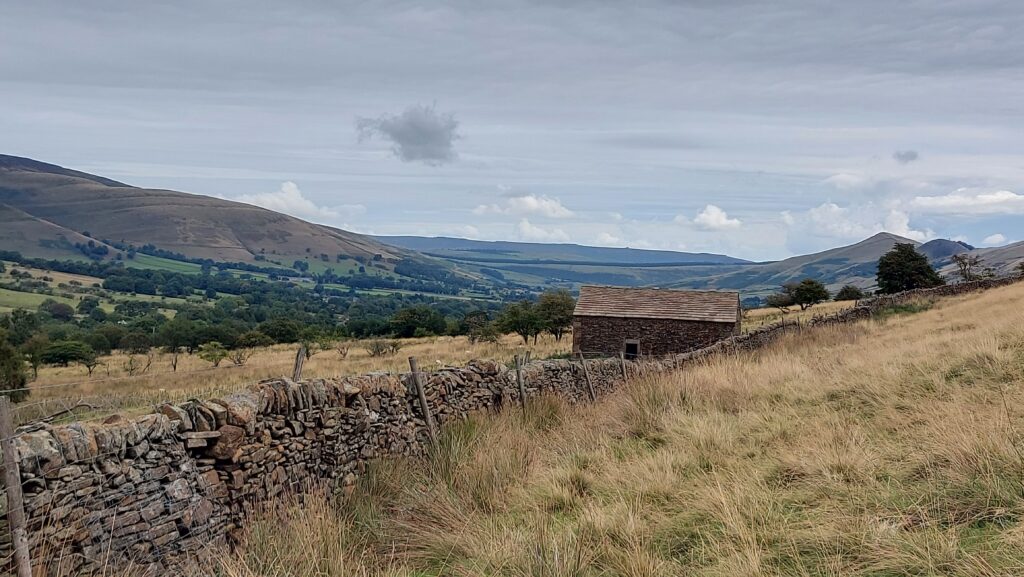
Much of the work involved conservation and preservation of the land. Kinder Scout has a massive peatland conservation project ongoing. I was able to see the progression of sites from 20 years back that had blocked water gullies and a variety of vegetation planted including sphagnum moss and cotton grass. This created good conditions for water retention, peat conservation and peat growth. Other conservation was aimed at reducing erosion from tourism, particularly important around Mam Tor. Not only is this an incredibly popular site, to the point that ‘desire lines’ that veer off the main paths cause scars on the landscape, but due to the geology the whole hillside is slipping. This is also what is currently happening to snake pass. My third example is caused by a combination of climate change and irresponsible tourism. We had severe drought most of the summer and record temperatures in July and August which meant the fire risk was extreme. Some of my time was spent on fire patrol, watching the land for signs of smoke so that any fire could be responded to quickly, responding to reports of BBQs which were banned during this time, and encouraging people to stay away from the moors in extreme heat. There were 3 fires this summer all caused by disposable BBQs. While none were technically on National Trust land, it is still devastating.
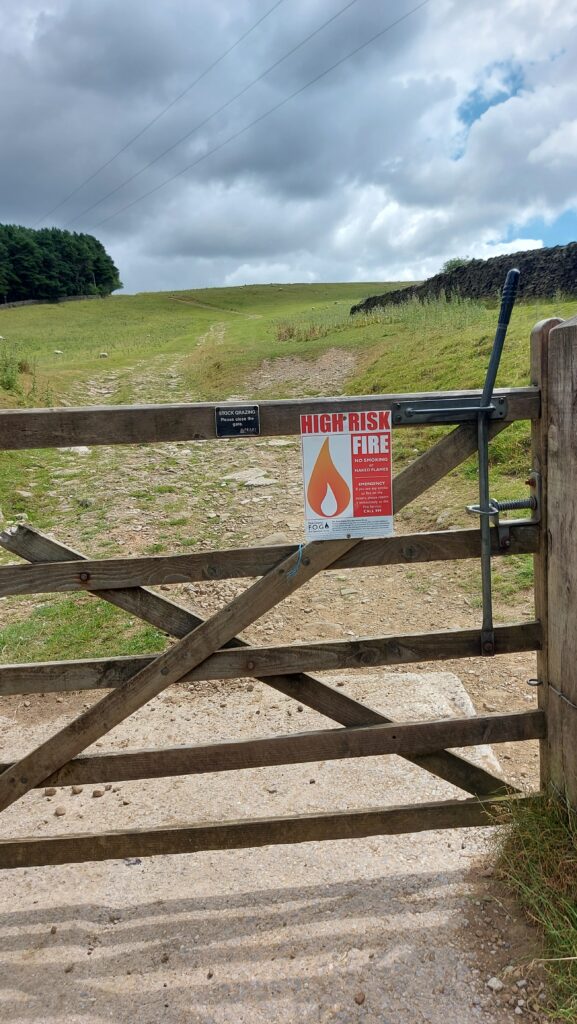
What made you want to do that particular placement?
Prior to this placement I spent a lot of time in the peak district. My main motivations were that I wanted to give back and help maintain the land and I wanted skills and contacts in a more practical field, to contrast the laboratory and analytical skills that I’ll gain from my PhD.
It’s important to keep doors open for alternative career paths, and I wanted to see whether my project management skills could fit into an organisation such as this.
How did you go about finding and planning your PIPS?
Charitable organisations such as the National Trust rely heavily on volunteer work. I went through the volunteering channels and asked to be put in contact with a group based in the peak district. From there I organised the placement with the area Ranger for the high peak directly.
What have you gained from doing your PIPS?
I’ve gained many practical conservation and countryside skills I would never have otherwise had access to – for instance dry stone walling is a dying trade. I also learned a great deal that could be helpful as a scientist if I ever undertake field work in challenging environments – such as building shelters and storage with second hand or minimal materials and driving a vehicle off road. I learned a lot about managing groups of people who represent different interests and the challenges and conflicts this can produce. Resolving these issues involved problem solving, compromise and presenting information differently, appropriate to the audience that was receiving it.
How would you sum up your PIPS experience?
During my experience I found myself on the back foot for a while at the beginning as I came up the learning curve, but then grew to be an incredibly enjoyable job as you could see the difference your efforts made in the land. It was a joy to work outdoors for 3 months and I was part of an incredibly lovely team of people.
What advice would you give to other PGRs about PIPS?
Choose something completely different to what you do as a researcher. It’ll open your eyes to how adaptable you can be and give you confidence in your transferable skills.
Kew Gardens – deadlines vary
Please see here for details on placements at Kew Gardens. Two placements have the following upcoming deadlines: 6th October 2023 and 31st October 2023, the rest are rolling deadlines.
UKRI Policy Internships – Apply by 2 Oct 2023
Please see here for details on the UKRI Policy Internships Scheme, which is now open! Placements are expected to take place within the 2024 calendar year, with the earliest starting in January 2024.
Royal Institute – various roles – Apply by 25 July 2023 (one role is 8 Aug)
The Royal Institution (Ri) is looking for nine Phd students to join us for a three-month internship across four different teams within the Ri: CHRISTMAS LECTURES (x1), Digital Media (x4), Marketing & Communications (x1) and the Young Scientist Centre (x3). These placements are ideal for students interested in science education and communication, and education outreach.
Read moreRoyal Institute – various roles – Apply by 25 July 2023 (one role is 8 Aug)
Phytoform Labs – Apply anytime
There is no deadline for applications. If you are interested, it is suggested you apply ASAP before they fill the role from elsewhere.
Get to know… your Comms Team
Want to know more about the students working behind the scenes to cover events, create newsletters and keep you up to date with everything WRDTP? Look no further!
Get to know… your WRDTP reps – Lewis Byrom
Meet Lewis – one of your student reps based at the University of York.
Carmen Apostol – LabLogic
For her PIPS, Carmen worked at a Sheffield-based international company called LabLogic who specialise in manufacturing and servicing instruments for nuclear radiation detection for medical, pharmaceutical and research applications.
The featured image is of the LabLogic logo.
What did you do?
My tasks were varied and I worked closely with the R&D team to test new prototypes for different nuclear radiation detectors. For instance, I tested several prototypes for detector probes that are used during breast cancer surgery to locate sentinel lymph nodes after the patients have been injected with Technetium-99. I also tested a new type of detector for an instrument used in pharmaceutical and research fields to analyse the purity of compounds labelled with radioactive isotopes. At times, I helped the production team qualify instruments before they were shipped off to customers around the world. For each of the projects that I was involved in, I wrote reports of my analyses and attended meetings where my data were discussed and used to inform the next steps in instrument design.
What made you want to do that particular placement?
Initially when I started searching for PIPS hosts, I was looking for local companies with ties to the medical or research fields. I saw on LabLogic’s website that they specialise in nuclear radiation detectors and that seemed very appealing to me as a large part of my PhD has involved work with radioisotopes. I also noticed on their website a “customer review” video featuring my secondary supervisor, Dr Dan Bose. Dan told me he had a good experience with LabLogic in the past and encouraged me to contact them.
How did you go about finding and planning your PIPS?
I emailed the contact address on LabLogic’s website and the head of R&D, Tom, who eventually became my supervisor, got back to me and arranged an in-person meeting to visit the headquarters. While there, I was shown around all the instruments they manufacture and introduced to the team and afterward we discussed their ongoing projects and how I could contribute during a 3-month placement.
What have you gained from doing your PIPS?
The PIPS experience helped me get a better appreciation of what working in industry could be like and I feel more encouraged to pursue a non-academic career now. I have gained more confidence in my transferable skills, which I successfully applied during the placement when setting up experiments, analysing results or producing figures and reports to share my findings. This experience also provided me with a better understanding of the many steps necessary in taking a product from concept to market, especially in such a highly regulated environment such as nuclear medicine and pharmacology.
How would you sum up your PIPS experience?
I had a very good time during my PIPS, thanks in particular to the very friendly and welcoming team who made me feel at ease early on. It was interesting and refreshing to learn about a different field to my own and focus on other challenges than the ones I was used to encountering in the lab and I am grateful for the opportunity to do a PIPS.
What advice would you give to other PGRs about PIPS?
Before you contact a company for the PIPS, ask others who have been involved with that company about their experience. Working with a friendly team is in my opinion just as important as the project, because it defines how welcomed you feel at the company and affects your overall experience a lot.
Don’t be put off by the thought of taking 3 months away from your project, it will be useful to come back to the lab with fresh eyes and see your experiments in a new light.
Luke Fountain – Grobotic Systems
Luke undertook his PIPS placement with Grobotic Systems, a small Sheffield-based start-up that builds bespoke next-generation plant growth cabinets for research, with input from Jacob Torres, the founder of the Space Chile Grow a Pepper Plant Challenge.
The featured image is of the Grobiotic Systems’ logo.
What did you do?
My placement was partly remote, partly run at Grobotic’s workshop and partly at the University of Sheffield. I carried out the placement part-time over the course of 12 months.
During my placement we created the ‘SpaCEA project’ (Space Controlled Environment Agriculture), and I designed and constructed a series of plant growth cabinets that replicate NASA’s advanced Plant Habitat (APH), for use both in ground-based space plant research and as tools for outreach, illustrating the similarities between plant growth technology used in space and that being developed on Earth to improve food security.
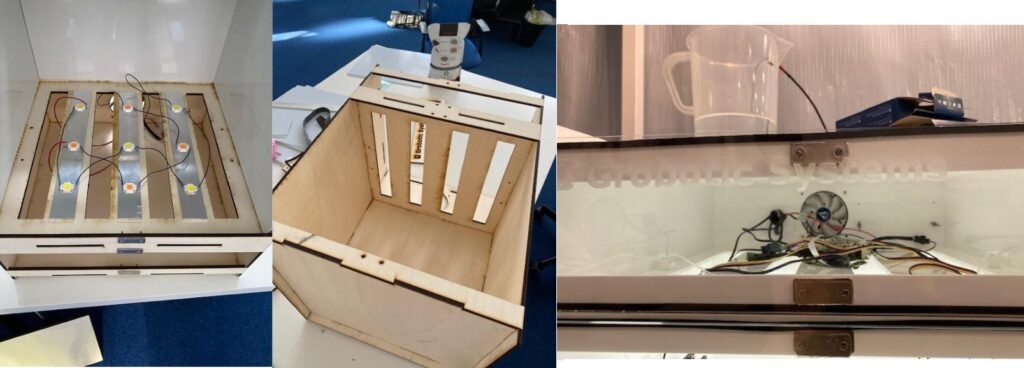
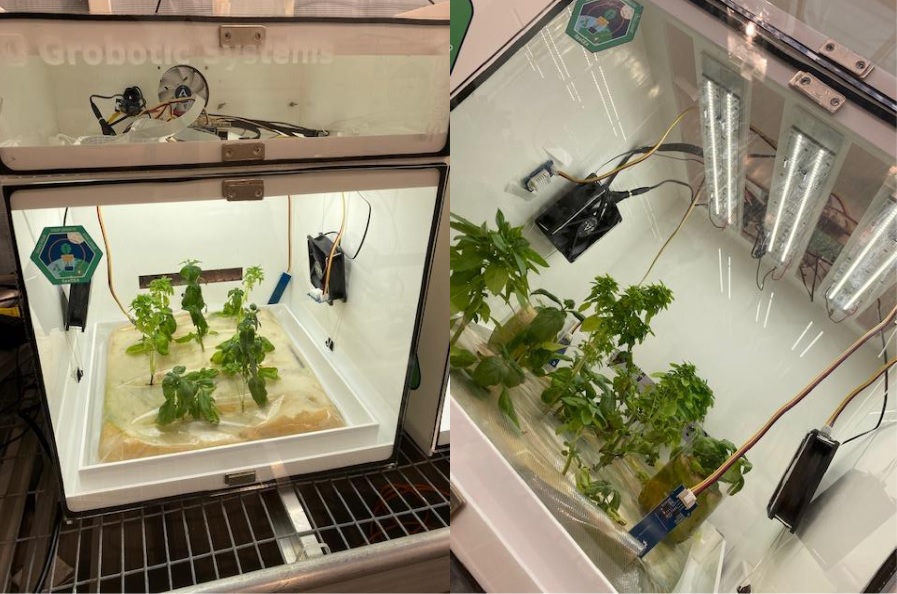
I had the opportunity to apply for a pump-priming grant from The University of Sheffield’s Institute for Sustainable Food which I was successfully awarded and was awarded additional funding by the institute to produce a podcast and short animated film highlighting the similarities between crop growth in space and on Earth.
I also had the opportunity to work closely with the University of Sheffield’s public engagement team and have exhibited the cabinets and film at their Pop-Up University event in Sheffield city centre, and most recently at the Institute’s ‘Feeding the world without costing the Earth’ launch event at The Royal Society in London.
The cabinets are now being used to test the performance of a polyurethane foam developed in Sheffield as a growth substrate compared to NASA’s current growth substrate, and I was intimately involved with the design and setup of this experiment, which will also test the potential of the cabinets for this type of research.
We have also created an outreach challenge called the Space Foam Crop Growth Challenge as a spin-off of the PIPS and this experiment, which we hope will run over the next year.
What made you want to do that particular placement?
I have long been interested in plant growth in space and would like to work in the field after completing my PhD. Because it is a relatively small field, I wanted to use my PIPS as an opportunity to gain experience in the area. I am an aspiring astronaut and recently applied for the latest ESA call for astronauts, and I hoped that this placement would enhance my application and any future applications that I make.
Prior to securing this placement, I had originally been in contact with NASA about carrying out a placement at Kennedy Space Center, but unfortunately COVID made this impossible and I was forced to look for alternatives.
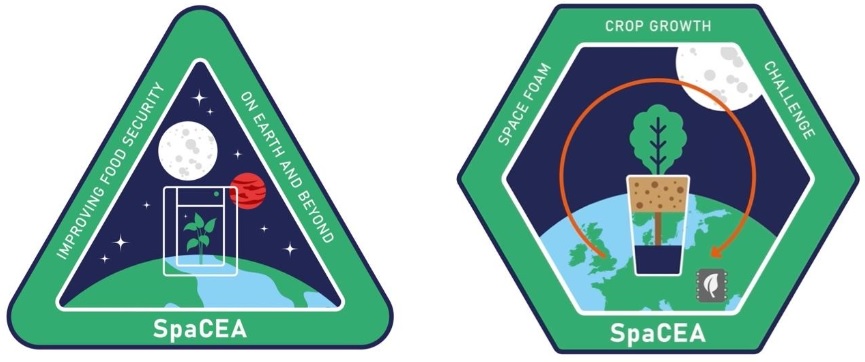
How did you go about finding and planning your PIPS?
The placement came about after discussions with Jacob online through the Space Chile Challenge and through connecting with Alexis at Grobotic Systems via colleagues in my PhD lab. Between us we came up with a placement that would be spread across remote working and using the facilities available in Sheffield, while also exposing me to a different work environment at Grobotic Systems where possible. We agreed a flexible, part-time placement would be most suitable in case COVID changed plans and to best fit in with my PhD work, where I was about to run a large-scale experiment that was time sensitive.
What have you gained from doing your PIPS?
I thoroughly enjoyed my PIPS and it gave me the opportunity to communicate and network with scientists and engineers working in space plant biology, which is key to my career aspirations. I had the opportunity to learn about and actively engage in space plant biology, in addition to learning a host of new and useful skills including how to design hardware, how to program Raspberry Pi-based systems, and how to wire up electronic components.
I was able to write a small grant application and liaise with the Institute for Sustainable Food and the public engagement team to create the necessary material and organise the setup of our exhibitions for various events, which requires a lot more work than I had expected!
I was able to experience first-hand the challenges and rewards of working at a small start-up and having numerous opportunities to engage both the public and other researchers in the work that we were doing gave me new ideas to apply to increasing visibility of my PhD work.
How would you sum up your PIPS experience?
My PIPS was an unforgettable experience. To contribute even in a small way to a field I am very passionate about was a dream come true, and I had the chance to work with many different people and in many different areas that I wouldn’t otherwise have had the chance to as part of my PhD.
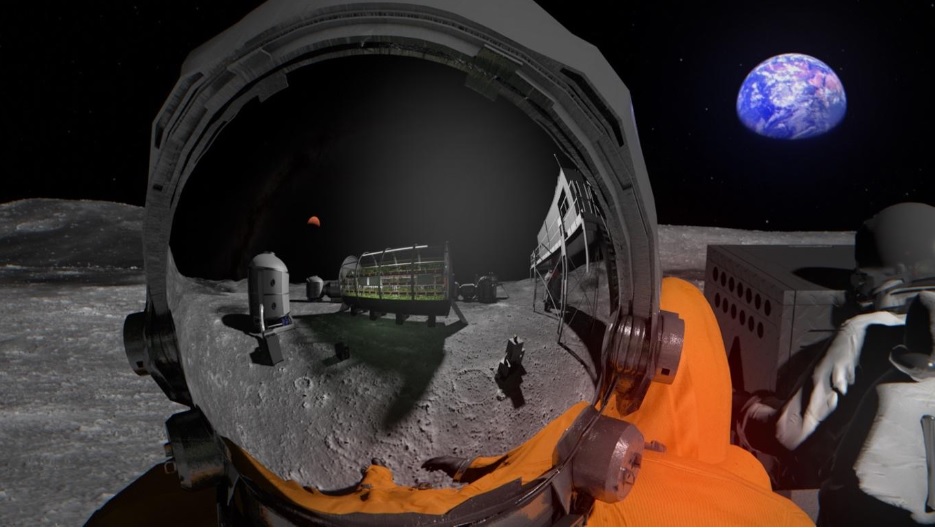

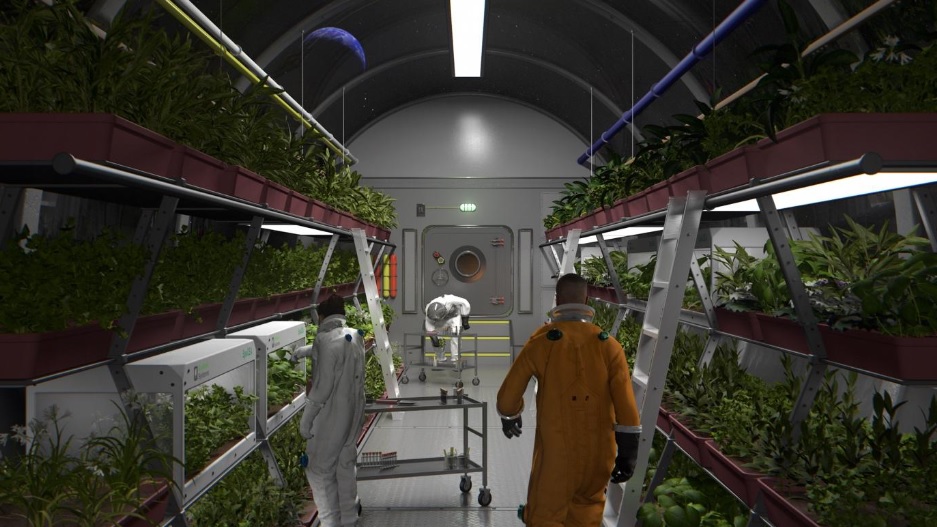
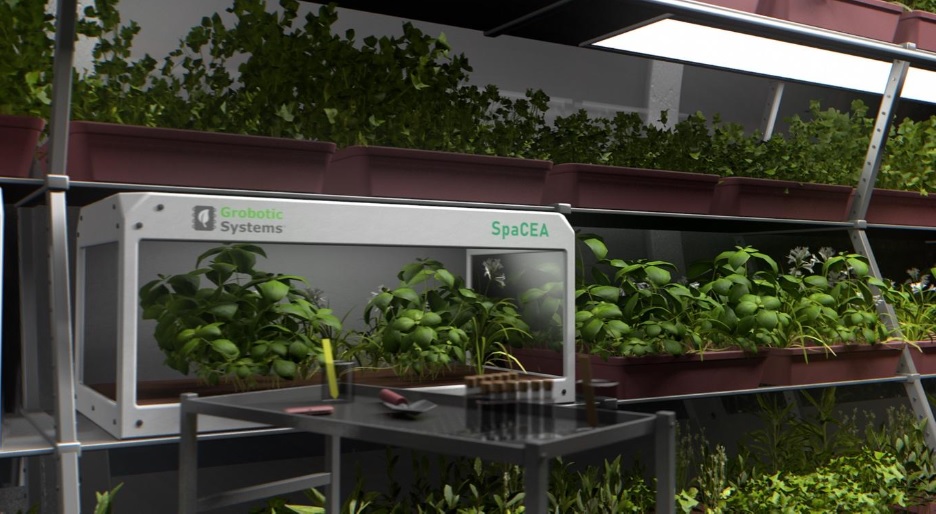
What advice would you give to other PGRs about PIPS?
Think outside the box. My PIPS was unconventional in almost every sense – adapting a PIPS during COVID was not easy but eventually allowed me to do a fantastic placement. Doing the placement part time not only helped me better accommodate the PIPS around my PhD, but also gave me more opportunities during my placement in the long run.
If there is a particular field/type of placement you would like to do, the best thing to do is find and contact those in the field/organisation – while some placements are advertised, many have not taken on PIPS placements before, but you will be surprised how many are willing to take you on.
Academy of Medical Sciences-Apply by 4Jul23
The Academy of Medical Sciences Grants and Programmes internship scheme is now open for applications for internships beginning from October 2023.
Megan Clarke – The Royal Society
For Megan‘s PIPS, she joined the Science Policy department at The Royal Society, working with the Living Landscapes team on the upcoming ‘Multifunctional Landscapes’ policy Report which explores the evidence for how the land can be utilised to deliver multiple outputs.
The featured image is of The Royal Society logo.
What did you do?
I was tasked with gathering evidence, writing sections of the report, making figures, editing, and proof reading.
The Multifunctional Landscapes Report is due to be published in November 2022 and I attended meetings to discuss launch plans with expert Steering Group members. The Living Landscapes team were keen to invite ministers to the launch event so I also wrote and sent invites to the Secretaries of State from Defra (George Eustice) and DLUHC (Michael Gove, at the time).
Using the evidence outlined in the Report, I also prepared a response to a House of Lords inquiry on Land Use in England on behalf of The Royal Society. This gave me the opportunity to write for a policy audience and improved my communication skills in this area.
My time at The Royal Society coincided with their annual Summer Science Exhibition which is the Society’s flagship public engagement event. Throughout the week, I volunteered as a Let’s Talk Careers Session Facilitator which provided A-Level students with an insight into a wide variety of research careers within science.
What made you want to do this particular placement?
I wanted to gain an insight into potential career options in science communication and science policy and the UKRI Policy Internship gave me the opportunity to do this. I chose The Royal Society as it is the UK’s National Academy of Science and has a strong influence on government policymaking. I felt that a placement here would allow me to work on some of the most pressing policy issues.
How did you go about finding and planning your PIPS?
I applied to the UKRI Science Policy internship scheme online. This involved answering questions about why I had chosen my particular host partner, and why I wanted to do the internship. I also had to write a 2-page POST Note style policy briefing on an issue of my choice.
After submitting my application, I was contacted by my chosen host partners and invited to interviews via Teams. When I was offered a place, I was put in touch with my future line manager at The Royal Society to discuss the logistics of my internship.
What have you gained from doing your PIPS?
I have gained a lot of valuable skills that I will bring back to my PhD and that I can use in my future career. I am more confident in my own abilities and know that if I wanted a career in science policy in the future, I would be well-equipped to succeed in one.
How would you sum up your PIPS experience?
I really enjoyed my time at The Royal Society and learnt a lot about science policy, which was an area I previously knew very little about. I appreciated my time away from the lab and valued the opportunity to gain insight into careers outside of academia.
What advice would you give to other PGRs about PIPS?
Don’t worry if you’re not too sure what you want to do after your PhD – and don’t let that influence where you apply to do your PIPS. Anywhere you go will provide you with great transferrable skills and give you an awareness of what careers are on offer outside of academia. Even if, at the end, you don’t see yourself working in the field you chose for your PIPS, at least you’ve learned that!
——
If you are interested in applying to the UKRI policy internship scheme, you can find more details here!
Employability Officer-Apply by 31Aug2023
This is a unique PIPS opportunity that has been created by Phil Lang, the PIPS contact for The University of York. You will be working alongside Phil in his wider role as Placements, Employability & Engagement Officer.
Teaching at York St John – Rolling deadline for 2023/24
This is a brand-new internship and has been uniquely created for White Rose BBSRC DTP students.
Read moreTeaching at York St John – Rolling deadline for 2023/24
Farm Carbon Toolkit – Apply anytime
Farm Carbon Toolkit is offering current DTP students the opportunity to work on their Farm Carbon Calculator.
The Royal Institution – Deadline 23rd May 2023
The Royal Institution is looking for a PhD student to join The Public Programme for a three-month internship to gain experience in science engagement and outreach. This internship will run concurrently from June to September 2023, for exact dates please see attached job descriptions.
Freddy Weaver – Wild Trout Trust
For his PIPS, Freddy worked for the Wild Trout Trust: a conservation charity working across the UK and Ireland.
The featured image is of Freddy working for WTT.
What did you do?
During my PIPS I worked for the Wild Trout Trust which involved travelling to numerous sites across North Yorkshire and West Yorkshire to becks and rivers in: Aire, Swale, Nidd, Wharfe, Calder and Ribble catchments. The placement involved both fieldwork and office work. The fieldwork element was incredibly varied and was fantastic. Fieldwork comprised of two main elements habitat monitoring or habitat improvement works.
Habitat monitoring work involved electrofishing on becks, in this work an electric current was passed through the water to temporarily stun the fish. Fish were then collected with species diversity, population and population age makeup measured. This would give an insight into condition of watercourse and potential issues such as relating to fish spawning for example. Other issues such as over grazing and sediment ingress or presence of weirs that are blockers to fish passage were noted during electrofishing or walkovers of new stretches and reported on.
Habitat improvement works involved a variety of both in and out of stream approaches with an overarching goal of increasing biodiversity, fish population size and spawning habitat. Examples of such work were installation of flow defectors, removal or notching of weirs, selective felling and laying of trees into watercourses and removal of culverts.
Office work involved writing reports detailing habitat on becks, blog posts for interaction with wider community and attending meetings with a wide variety of partners to discuss issues, challenges and funding for future and past projects.
Check out Freddy’s blog posts here:
- https://www.wildtrout.org/wttblog/welcome-freddy-weaver
- https://www.wildtrout.org/wttblog/getting-stuck-in
- https://www.wildtrout.org/wttblog/reflections-on-a-summer-with-wtt
What made you want to do that particular placement?
I am a keen fisherman and have a passion for the outdoors particularly relating to the aquatic environments. The Wild Trout Trust’s approach of using native brown trout as a keystone species for evaluating overall habitat health results in large benefit across a wide variety of urban and rural habitats both in the water and out. So, the opportunity to give my help and time to this wonderful goal was a real appeal. Furthermore, it was the opportunity to try something completely different from my day-to-day lab work and learn so much about an environment I cherish and have enjoyed since childhood. Finally a summer outdoors in the wonderful Yorkshire countryside I felt would be a lovely break and recharge from my academic studies.
How did you go about finding and planning your PIPS?
I decided that working with environmental charities that specialise in the aquatic environment was my choice for PIPS. I then proceeded to email local and national charities that do this work with my CV, an explanation of who I was, what PIPS involved, and why I wanted to apply to them. Unfortunately, a number failed to respond or communication broke down on their end. However, on contacting the WTT I had a response and was put in touch with Yorkshire Research & Conservation officer Professor Jonathan Grey and after a phone call interview he decided to go ahead with me and the PIPs programme.
What have you gained from doing your PIPS?
It has given an insight into not only the challenges facing our waterways, but a more holistic understanding of the working environment that is our countryside. Furthermore, it has given me an introduction to the wider world of ecology and habitat improvement. In addition, it has improved my communication skills in both written and oral form. In particular communication of ideas to both a technical and non-technical audience such as outreach at country shows.
How would you sum up your PIPS experience?
A summer that I will treasure for a long time. That succinctly encapsulates my feelings toward the last three months working with the Trust. A brilliant time that taught me so much about the natural world and how we can work to rectify the damage that we have done to it. Just fantastic.
What advice would you give to other PGRs about PIPS?
It is my belief that PIPS is a fantastic opportunity to broaden horizons to what work is available beyond your own academic speciality. In particular if you have a passion, try to find a PIPS that in some way works in that field and follow your heart rather than doing the expected norm within your area.
Make it as enjoyable as you can and cherish this opportunity to try something new. A PhD is hard so why not use the 3-months to discover something new and have fun!
Get to know… your WRDTP reps – Erin Tait
Meet Erin – one of your student reps based at the University of Leeds!
New Phytologist – Apply anytime
The purpose of this role is to provide administrative support to the Executive Editor and senior publishing staff in publishing of the journals New Phytologist and Plants, People, Planet.
The New Phytologist Foundation is an independent, non-profit-making organization dedicated to the promotion of plant science.
Azotic Technologies – Apply anytime
Azotic Technologies Ltd is an innovative Biotech company specialising in the development and commercialisation of novel microbial biostimulants for the agricultural sector.
BBSRC ICURe Explore Programme – Deadline 27th March 2023
Applications are now open for the BBRSC ICURe Explore programme, designed to help bioscience researchers, PhD students and technicians to explore the market and commercial potential of their bioscience research projects. Up to £35k of funding is available to ‘get out of the lab’ and validate commercially promising bioscience ideas in the marketplace.
Read moreBBSRC ICURe Explore Programme – Deadline 27th March 2023
Katie Gelder – Medicines Discovery Catapult (MDC)
Katie Gelder, a 4th-year PhD student at the University of Sheffield, completed her PIPS at the Medicines Discovery Catapult (MDC), based at Alderley Park in Cheshire.
Where did you go and what did you go?
I did my PIPS at the Medicines Discovery Catapult (MDC). A non-profit organisation of ~ 140 people, which aims to bridge the gap between academia and industry, generating a wealth of knowledge and contacts to further drug discovery. MDC is mainly funded by Innovate UK but also has an assortment of assays that are available at a fee for service. This enables smaller companies and groups, that don’t have the equipment or expertise, to progress in the drug discovery pipeline, reducing the time it takes to get medicines to patients.
My project was to develop an ex vivo assay to study mouse brains and tumours to determine the effects of drugs on specific cell types, such as neuronal networks in the brain or vasculature in tumours following an in vivo project. This will allow us to determine more specifically the mechanism of action of the drug of interest. This project was a collaboration between the pre-clinical imaging team and the microscopy team, providing me with the opportunity to perform tissue fixation, immunofluorescence and several different microscopy techniques while learning how to analyse 3D datasets.
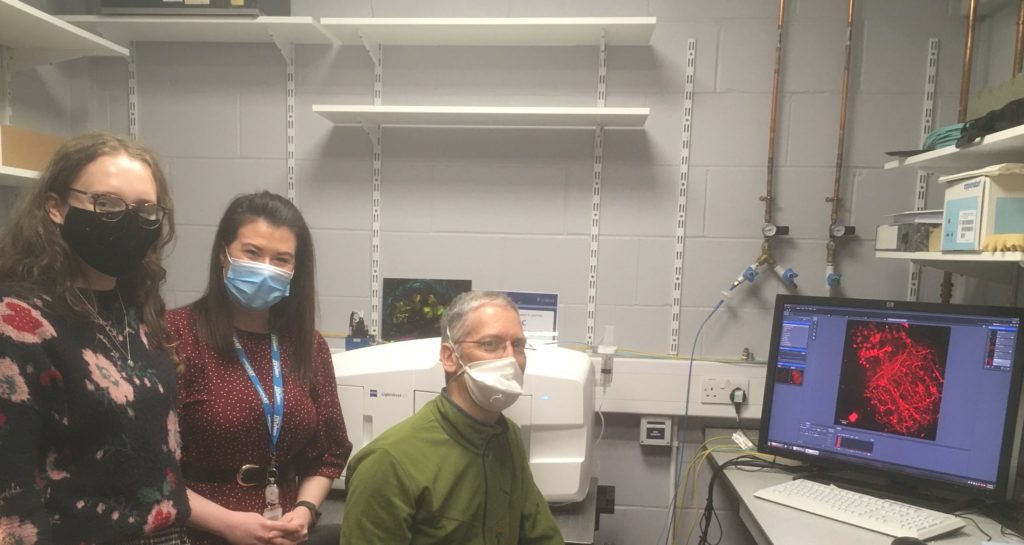
What made you want to do that particular placement?
This placement stood out to me for several reasons. Firstly, I was extremely interested in experiencing this middle ground between industry and academia. I know that I want to stay in science and so I wanted to gain experience in an industry that I had not yet considered. The cross-functional nature of this project between the pre-clinical imaging team and the microscopy team was also appealing, by having the chance to work with different people I had more of an opportunity to learn. I have also never done in vivo work before or worked with tissues – this project was the perfect crash course into another area of science that I have not yet had the opportunity to experience. Overall, this placement ticked a lot of boxes for me.
How did you go about finding and planning your PIPS?
I learned about this placement through a job advert circulated through the Science Graduate School at the University of Sheffield. These placements were competitive and not specifically directed at White Rose BBSRC PhD Students. The project which I applied for was well defined, and after sending through my application and interviewing I was delighted to have got the offer to undertake a 4-month placement at MDC.
What have you gained from doing your PIPS?
I have learned a lot during my PIPS placement, not necessarily all scientific based. It is true that I have gained experience working with tissues including fixing and tissue clearing along with the challenges that are posed when looking at whole mouse organs and analysing large datasets. I have also gained a greater knowledge of Scientific drug discovery outside of larger pharmaceutical companies, and how rewarding it can be to work with smaller enterprises. This experience has also increased my appreciation for collaboration – working within MDC has taught me that so much can be achieved just by sending an email. At MDC I have not only gained industry experience but skills that I will continue to use throughout my career.
How would you sum up your PIPS experience?
Overall, I have really enjoyed working for the MDC, the environment which is cultivated there is one of innovation and collaboration, a group of lovely individuals working towards the same goal. I have gained so much experience that was outside the scope of my PhD and managed to make a lot of progress in such a short amount of time. This placement has opened my eyes to the different options available post-PhD either in an organisation like the MDC or in drug discovery in smaller companies.
What advice would you give to other PGRs about PIPS?
Choose a PIPS placement that allows you to gain the newest experience in a field/industry that you are interested in. It’s the perfect opportunity to try something new and learn something that you otherwise would not have the opportunity to do.
Get to know… your WRDTP reps – Eshita Sengupta
Meet Eshita – one of your student reps based at the University of Leeds!
Ruth Thomas – The Oxford Trust
Ruth, undertaking her PhD at the University of Sheffield, has completed her PIPS placement at The Oxford Trust, which is a charitable organisation encouraging the pursuit of science. She worked within their Education and Outreach branch known as Science Oxford.
The featured image is of the Oxford Trust logo
What did you do?
A large part of Science Oxford is their Science Oxford Centre, a hands on indoor-outdoor outreach centre full of activities and woodland to explore. They encourage the children (and adults!) that visit to try out experiments with very little instruction, aiming to make them think ‘like a scientist’.
I had several projects during my time here including the development of a ‘Live Lab’. This additional activity ran as a pop-up event alongside the centre’s Family Days and School visits. My PhD is in genetics, and so I based my Live Lab on the instructions for life (DNA) and how we can extract DNA from strawberries using things you can find in your kitchen! Although unsure at first, the look of amazement on the faces of the children when they realised what they had managed to do was fantastic!
What made you want to do that particular placement?
During my PhD I had been involved in outreach events with primary schools (Bateson Centre Aquarium), secondary schools (STEM for girls, The Brilliant Club) and also teaching undergraduate students in the lab. In all cases, the students were enthusiastic about experiencing science outside their normal learning environment. I enjoyed running the outreach activities but had little idea of the organisation and planning that went into such events. Thinking that this was potentially an area I would like to work in post-PhD, I searched for an opportunity that would allow me to continue delivering science outside a classroom but also experience the ‘behind-the-scenes’ running of such a company.
How did you go about finding and planning your PIPS?
I asked for advice from friends, family and my supervisor, to see if they had worked with or had any memorable experiences with science outreach events/companies. I wanted to take the opportunity to work in a different part of the country and, as I grew up near Oxford it seemed a logical place to start. It also had the added bonus of making accommodation easy. A little research into outreach companies in Oxfordshire led me to Science Oxford. They had never taken a PIPS student before so I sent my CV along with an accompanying cover letter to a contact address I found on their website. We met online so I could explain further about the benefits of PIPS to themselves as a host company and they agreed to take me on!
What have you gained from doing your PIPS?
Although I had some experience of outreach during my PhD, they tended to be events that were organised ahead of time, and I was just a volunteer. Working with Science Oxford has given me an understanding of the work that goes into the design and delivery of successful outreach events, workshops and family days. They have enhanced my communication skills, teaching me that encouraging people to think and talk about questions is far more effective than trying to get them to the ‘right’ answer. I have taken my analysis of experiments and turned it towards evaluating workshops, measuring the impact and critically assessing the successes and failures.
How would you sum up your PIPS experience?
Inspiring, rewarding and confidence building!
The opportunity to pursue an interest and gain insight into a job role that I am potentially interested in holding in the future was invaluable. It also highlighted the fact that I had developed skills during my PhD that didn’t require a lab coat, and that these are sought after by employers.
What advice would you give to other PGRs about PIPS?
Find an area you are currently interested in and go with it, this does not have to define your career path for the rest of your life! Don’t be afraid to send out your CV to several companies at once, it is likely that some won’t reply and others will say no but you will get there in the end! Be sure to include a detailed description of what a PIPS placement is, particularly if they have never hosted a student before, it can be a confusing concept!
Due to Covid, I ended up doing my PIPS placement 10 months before I was due to finish. Although I enjoyed every second, I would definitely recommend aiming to do it in your second or third year!
Useful links to find out more
Science Oxford wrote a blog about having Ruth as a placement student: Catapulting careers in STEM – meet our placement student (scienceoxford.com)
Victoria Hill – EMBL-EBI
For her PIPS, Victoria worked within the training team at EMBL-EBI (European Molecular Biology Laboratory, European Bioinformatics Institute) based in Cambridge. EMBL-EBI is an international organisation that handles big biological data for scientific discoveries.
The featured image is of the EMBL-EBI logo
What did you do?
I worked with the EU projects team who are one of the managing partners for large centres of excellences and projects such as BioExcel, PerMedCoE, and RITrainPlus. My role during this time was to provide learning and career development support to professionals in computational biomolecular research. As somebody working in this field, it was an invaluable opportunity.
I was lucky enough to be involved with a number of exciting projects, from writing career profiles and a learning pathway for EBI’s new Competency Hub, to organising and hosting virtual courses and webinars, and writing content for social media. I was responsible for a couple of courses and webinars myself for which I had to create all of the course materials and facilitate discussions during the course itself; and I also worked with a small team of organisers for larger courses where, along with creating course materials, I was also involved in the selection of participants and organising social sessions. During the courses, I was an ‘expert’, which meant that I wrote-up notes from the open discussion sessions for the participants to refer to later, and also was on a panel of early career researchers for a discussion on careers in computational biomolecular research. Organising these courses and being present during them mean that I also learnt a lot regarding the software and methods that I use during my own research. I was also a useful inclusion for EMBL-EBI to their Training Team, as I was able to offer insight and opinions as one of their main target audiences for their courses.
My placement coincided with a project that is nearing its end of funding. This allowed me to be part of larger discussions regarding funding and I was also responsible for report-writing for project deliverables. Overall, it gave me a unique insight into how large project grants are managed in such an institution. I was also able to network with many researchers in my field that work on these projects from course trainers to software developers and internationally recognised researchers.
How did you find this placement?
I have been to a course organised by EMBL-EBI during the first year of my PhD and during that course, the participants were asked if they would like to get involved in testing a new learning pathway for their training website, which I did. When I started thinking about what to do for my PIPs, I then decided to contact the organiser of that course myself, who I had been in contact with already thanks to my testing of the training materials. She was happy to take me within the team as an intern and we then went on to discuss what activities I would like to do.
What made you want to do that particular placement?
Firstly, because I approached the host organisation myself, I was able to decide myself, to a certain extent, what I would like to do on my placement. Also, as my research is mostly computational based, working within bioinformatics would definitely provide me with valuable experience for my future career. When I was thinking about what to do for my PIPS, I thought about the areas that I would like to improve in, mainly communication as well as some actual research skills. This was therefore the perfect place to work on both of these.
What did you gain from your PIPS placement?
Working on the Competency Hub has taught me what competencies are and, importantly, how they can be used at my career stage. Mapping competencies to career profiles has given me the opportunity to reflect upon my own training needs and I will be sure to use the competency model to aid my own professional development going forward. The Competency Hub project is highly collaborative and involves a number of different teams within EMBL-EBI and externally. From this, I have gained perspective on different ways of managing a project, which can be directly applied to my research. I would say that my biggest improvement during my placement was surrounding communication and social media, which was an area that I wanted to work on when I started planning my PIPS. I have gained insight into how to communicate recent news in my field to different audiences as well as how to promote research and learning opportunities through social media. Owing to this, I now feel more confident in the wider area of science communication. Before my project, I was nervous about public speaking and hated giving presentations. Now, although I may not enjoy them, due to how much I had to present to my team and external partners and course participants, I feel much more capable which helps my confidence. Working in a more hybrid academia/industry setting gave me the opportunity to see new ways of working and the differences and similarities between the two. I now understand much better how I work best and how to translate that to managing my PhD project.
How would you sum up your PIPS placement?
I think my PIPS placement was especially useful for my professional development. It has not only allowed me to identify areas that I need to work on going forward but has also given me the tools that I need to do so. Having the opportunity to talk to so many researchers in my field, from PIs to Post Docs and PhD students, has given me many opportunities to think about my future career and I now feel more certain about what I want to do following my PhD.
What advice would you give to other PGRs about PIPS?
Don’t be tempted to work on your PhD throughout your placement! As my placement was virtual and my research is mainly computational based, this would have been very easy for me, and it was something that I had planned to do. However, I actually was too busy to look at my research for the whole three months and I found it to be a very refreshing break. I am probably now more excited and ready to get back to my research than if I had continued working.
Want to find out more? Victoria has posted numerous blog posts about her experience on this PIPS placement. See links below.
In Focus with Victoria Hill: International Day of Women and Girls in Science
Lilium – Oxford
Job role: Protein Engineer
Location: Westbourne Park, London
Position: Full-time, available from April onwards
There is no deadline advertised but the position is likely to start from April, so don’t delay your application!
CABI
CABI (Centre for Agriculture and Biosciences International) is an international not-for-profit organization that improves people’s lives by providing information and applying scientific expertise to solve problems in agriculture and the environment. We bring science-based agricultural knowledge to millions of smallholder farmers helping to increase their yields and adopt data-driven approaches to support informed decision making.
OZBRIUM – Cambridge
OBRIZUM Group was established in 2015 to transform digital learning. We are a Cambridge-based EdTech company at the forefront of the AI-led eLearning revolution. Our founders discovered that the amount of information we need to consume and apply is increasing exponentially. However, existing eLearning methodologies — which present information linearly — cannot scale with this rapidly increasing body of global knowledge, and will eventually collapse.
Oxford University Innovation
Oxford University Innovation (OUI) is the technology transfer company of Oxford University. Each year, OUI receive hundreds of invention disclosures from the University, many resulting in new patents.
Cloud-SPAN – Deadlines 13th & 31st March 2023
Cloud-SPAN is a collaboration between the University of York and The Software Sustainability Institute funded by the UKRI innovation scholars award. It aims to train researchers to effectively generate and analyse a range of ‘omics data using Cloud computing resources.
We have 2 upcoming Cloud-SPAN courses. Both of the courses are free of charge and we offer scholarships to support costs associated with attending the course:
SysMIC – Course starting 24th April 2023
SysMIC is an online course developed in association with the BBSRC to provide effective training for the bioscience community. It involves approximately 120 hours of study over six months and has a flexible format designed to fit around research commitments. It is suitable both for PhD students requiring initial training or established researchers looking to enhance and develop their skills portfolio. The course was put together jointly by academics from UCL, Birkbeck, the Open University and University of Edinburgh and since 2012 over 3,000 researchers have
tudied with us
Watch a brief overview of SysMIC here
Find out more at: https://sysmic.ac.uk
You can get a discount on the course fees for signing up as a DTP student. (You can use your RTSG for this, in consultation with your supervisor). If you wish to sign up for the SysMIC course, please contact the DTP Co-ordinator, email: WRDTP@leeds.ac.uk. The course is run twice a year so there will be other opportunities if the timing is not right for you at this stage.
2023 BBSRC Bursaries for Birmingham Metabolomics Training Centre – Deadline 3rd May
Dates: 15th – 18th of May 2023
Location: School of Biosciences, the University of Birmingham
Do you want to attend this course for FREE?
There are a limited number of bursaries available for LC-MS Based Metabolomics and Metabolite Identification with the Q Exactive Plus and Orbitrap ID-X Tribrid. These bursaries cover the registration cost of BBSRC-funded researchers, making it completely free for them to attend. Further guidance, eligibility criteria, terms and conditions can be found on the application form below. Please apply promptly to avoid disappointment.
Read more2023 BBSRC Bursaries for Birmingham Metabolomics Training Centre – Deadline 3rd May
Newsletter – Spring 2023
BBSRC WRDTP Newsletter Autumn 2022
Happy New Year! Welcome to the first 2023 edition of the WRDTP Newsletter, a regular email which will go out at the start of each semester! The aim of this newsletter is to keep you informed on upcoming events and opportunities, as well as to share with you the achievements of our students.
If you have any news items you wish to be included in future newsletters, please email them to a member of the Comms Team!
~~~~~~~~~~~~~
News
DTP Symposium, Dec 12th 2022
A huge thank you to everyone who took part in our December symposium! Whether you helped to organise the event, gave a talk about your research or PIPS placement, brought along a poster or even just attended, you helped to make the event a roaring success.
Congratulations to those who won prizes on the day! Jess Davis won first place for her research talk, followed by Theo Issitt and Laura Cowell. Our first place poster prize went to Victoria Hill, second to Lydia Barber and third to Aidan Johnson. Joanna Greenman won first place for her flash talk, followed by Jessica Edge and Liam Barratt, and Roz Latham won best PIPS talk.
We also heard from some excellent Keynote speakers: Dr Richard Malham (Head of Research Policy, Integrity and Governance, University of St Andrews) and Dr Rupert Lewis (Chief Science Policy Officer at the Royal Society), and our Q&A panel allowed for interesting discussions about life after finishing a PhD. Thank you to Dr Sarah Harvey (Mewburn Ellis LLP), Dr Claire Stoker (Spirit Medical Communications Group Limited) and Dr Elspeth Ransom (Defra) for forming our panel this year!
Spring Training Day, 29th March 2023, York
The first event of our new training programme is the Spring Training Day, which will be held in York on the 29th of March. The Spring Training Day aims to bring together the whole cohort: with years 1-2 having analytics training and years 3-4 training hopefully focusing on essential skills such as public speaking, publishing, job hunting and interviews/viva. There will also be time for social activities and cohort building! Make sure you have completed this form by the 20th of January. This is a compulsory part of the DTP training schedule so please make every effort to attend!
A note from your comms team
Are you interested in science communication and/or are wanting to fill that CV? We’re looking for new members to join the WRDTP Comms Team! No experience required and time commitment can be flexible. Whether it is writing one-off blog posts or becoming a permanent member of the team, it would be great to welcome some new faces and perspectives onto the team! If you are interested or would like more information, please contact a member of the Comms Team.
Student Achievements
Prizes and awards
Congratulations to: Patrick Hunter, who won 3rd place for research and career showcase poster prize; Theo Issit for winning a £9000 Elsie may Sykes award for a pilot study in cancer patients at York hospital, being a 3-minute thesis national finalist and Falling walls Delft winner; and Gemma Banister for a successful grant application for a 3-month placement under the UK-Canada Globalink Doctoral Exchange Scheme with UKRI.
Publications
Below is a list of recent publications from some of our students:
- Patrick Hunter: Single-molecule and super-resolved imaging deciphers membrane behaviour of onco-immunogenic CCR5 (Hunter et al., 2022)
- Lydia Barber: Selectivity and stability of N-terminal targeting protein modification chemistries (Barber et al., 2023)
- Emily Magkourilou: Sequence of introduction determines the success of contrasting root symbionts and their host (Bell, Magkourilou, Field & Irwin, 2023) and Arbuscular mycorrhizal fungal-induced tolerance is determined by fungal identity and pathogen density (Bell et al., 2022)
We understand that there are many more achievements worth celebrating that are not mentioned above, and we apologise to anybody not included! To avoid this in the future, it would be great if you could let us know what you have been up to, either via email or by tagging the WRDTP account (@BBSRCWhiteRose) on twitter.
Newsletter – Autumn 2022
BBSRC WRDTP Newsletter Autumn 2022
Welcome to the first edition of the WRDTP Newsletter, a regular news update which will be released at the start of each semester! The aim of this newsletter is to keep you informed on upcoming events and opportunities, as well as to share with you the achievements of our students.
If you have any news items you wish to be included in future newsletters, please email them to a member of the Comms team!
~~~~~~~~~~~~~
News
Welcome to our new cohort of 2022 starters! We are so excited for you to be a part of the White Rose DTP, and look forward to seeing all that you accomplish.
Masterclasses 2022
DTP masterclasses were a brand new, exciting concept launched in 2021. Our 2022 masterclasses hosted at Leeds, York and Sheffield were a great way for students to delve into the latest developments in an area of research with top academics from each university.
This year, talks were focussed in the areas of: Navigating the academic environment, genome engineering, super-resolution imaging, analysis of microbial omics data, single-cell RNAseq, and cryo electron microscopy. We hope that most students were able to attend at least one of the masterclasses that was relevant to their research, and that you were also able to get to know your DTP colleagues from across all years and universities!
We are looking forward to running our masterclasses again in 2023, and would love some suggestions as to which topic areas you wish to be covered! It would be great to cover the areas that you will find the most interesting and useful in order for everyone to get the most out of these sessions.
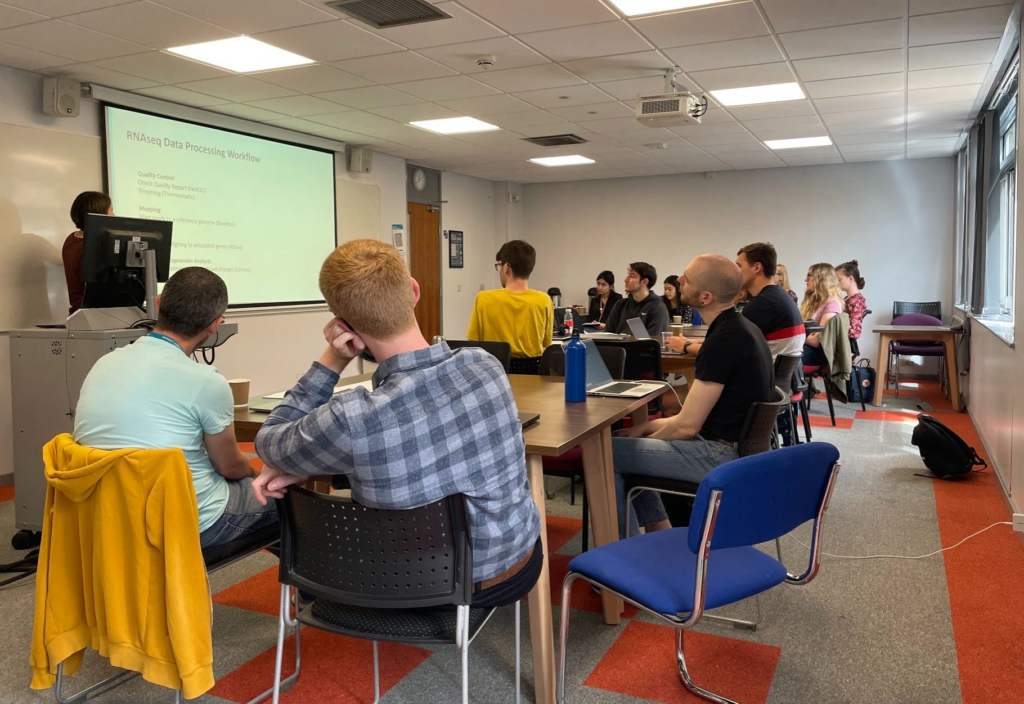
DTP Symposium, Dec 12th 2022
Registration for our annual symposium is now open! Attendance is compulsory for all students, except for those on placements. Unlike the past two years, this year’s event will be held entirely in person! This means that no posters or talks will be accessible virtually and we encourage everyone to attend.
This year, the symposium will take place at The University of York on Monday 12th December, 09:00 – 18:00.
- 4th Year students must submit an abstract (deadline Monday 31st October)
- 3rd year students will need to make a poster based on their research. Poster criteria and submission deadlines will be communicated nearer the time.
A note from your comms team
Are you interested in science communication and/or are wanting to fill that CV? We’re looking for new members to join the WRDTP comms team! No experience required and time commitment can be flexible. Whether it is writing one-off blog posts or becoming a permanent member of the team, it would be great to welcome some new faces and perspectives onto the team! If you are interested or would like more information, please contact a member of the comms team!
Student Achievements (Easter-Summer 2022)
Prizes
Congratulations to Ezra Herman, a student in the Friman lab from York who has been awarded the Enrichment Placement Award from the The Alan Turing Institute!
A huge well done also to Alex Holmes who won the Leeds Partnership Awards 2022!
Publications
Below is a list of recent publications from some of our students:
- Kyle Le Huray: Systematic simulation of the interactions of pleckstrin homology domains with membranes (Le Huray et al. 2022), and Characterization of the membrane interactions of phospholipase Cγ reveals key features of the active enzyme (Le Huray et al. 2022)
- Harry Pink: Identification of genetic loci in lettuce mediating quantitative resistance to fungal pathogens (Pink et al. 2022)
- Theo Issitt: Sampling and Analysis of Low-Molecular-Weight Volatile Metabolites in Cellular Headspace and Mouse Breath (Issitt et al. 2022)
Other achievements
See what else our students have been up to!
- University of York students Harry Pink and Ethan Redmond both presented their research at the ICAR conference in Belfast. Read about their experience here!
- Leeds student Alex Holmes hosted a gameshow at Be Curious 2022. See here to read more!
We understand that there are many more achievements worth celebrating that are not mentioned above, and we apologise to anybody not included! To avoid this in the future, it would be great if you could let us know what you have been up to, either via email or by tagging the WRDTP account (@BBSRCWhiteRose) on twitter.
Jess Davis – Roundabout
For her PIPS, Jess chose to do something slightly different. She volunteered for Roundabout: South Yorkshire’s biggest youth homelessness charity which supports over 300 16-25 year olds every day. Roundabout provide a range of support from emergency accommodation, to bespoke career advice and tenancy support.
The featured image is of the roundabout logo
What did you do?
I worked for a charity called Roundabout, which is South Yorkshire’s biggest youth homelessness charity, supporting over 300 16-25 year olds, every day. They provide a range of support from emergency accommodation, to bespoke career advice and tenancy support. Because Roundabout is a relatively small, local, charity I got the opportunity to work across multiple different departments, and therefore got a great feeling of the charity overall, and how charities are managed and operate.
Two days a week I worked in ‘Central services’. This is the administrative and financial side of the charity. Here I helped with housing benefit applications, balancing books and working out why some client accounts were in arrears. I also helped in the maintenance of the client database, and learnt about the legislation surrounding trustees.
Once a week I worked at ‘Homeless prevention services’. This is a drop in service in Sheffield city centre, where young people who are homeless, or need housing advice can come, and get free, unbiased support. The best part about this service is that no young person is ever turned away, the Roundabout staff always find a safe place for them to stay. Here, I shadowed and learnt how to interview young people who presented at the service and learnt about the different streams of support available to homeless young people, either from the council or local charities. I also helped in writing their 2021 National Lottery Annual Report, and the final Children in Need report for Roundabout’s five-year funding cycle. I interpreted data collected by the drop in service and made graphs to best display the charities output and contribution towards preventing youth homelessness in South Yorkshire.
Twice a week I worked at the Roundabout hostel. Here I improved some of their documentation for recording client information, making it more stream lined and user friendly. I also spent a lot of time getting to know the young people, and supported them in day-to-day tasks. I also independently ran ‘life skill’ sessions where I baked and cooked with the residents, and organised their Christmas party.
In addition to this, I also did some work with the fundraising team. I assisted in the organisation and running of multiple events including the ‘South Yorkshire chocolate festival’, which was attended by 2000 people, a ‘Sleep out’ event, and I also ran a stall at the Sheffield Christmas market educating the public about youth homelessness and the work of Roundabout. Finally, I also got the opportunity to work with the Grants team. I successfully wrote an application to a community grant sponsored by Vodaphone, which was awarded. I also researched and wrote a letter to City Fibre enquiring about obtaining free Wi-Fi for all residents, and applied to a community grant with the South Yorkshire Community Foundation (SYCF), both of which we are yet to hear the outcome of.
What made you want to do that particular placement?
I wanted to take this PIPS opportunity to experience something outside of science, and to hopefully make a positive impact on my local community. I also wanted to gain experience and skills that are more easily recognised by companies outside of science and academia, for example in finance, management and teamwork.
How did you go about finding and planning your PIPS?
I had already heard of the amazing work being done by Roundabout in South Yorkshire, so I sent them a message on the ‘Contact us’ portion of their website, describing who I am, the skills I have, and explaining what a PIPS placement entails.
I wasn’t expecting to hear back from them, but they emailed me back almost straight away! I then arranged to meet with them in person and discuss what I could potentially do during my internship. Before this meeting I had made a fresh CV and made a list of things I would like to do during the placement, which really helped steer the meeting and plan what I could be involved in. I then started 2 months later and had the best time!
What have you gained from doing your PIPS?
The biggest thing that I gained from my PIPS was confidence in my abilities. Working in an environment where there were no expectations put on me meant that I really thrived. I have learnt that it’s always best to just give something a go even if you’re not 100 % sure on what you’re doing, it’s better to just try than to not do anything at all!
I gained more confidence in my ability to back myself and confidently put forward ideas. Working with a wide range of people at Roundabout has made me realise that as PhD students we have strong problem-solving skills and often come up with good ideas. It was really nice to be surrounded by other positive, enthusiastic members of staff. I also learnt so much about business and people management. Being an intern and working in so many different teams meant that I saw a lot of different working and management styles. I learnt so much about the general organisation of the charity, the hiring process, and how everyone’s roles fit into the overall running of Roundabout. Very interesting!
How would you sum up your PIPS experience?
My PIPS has been an amazing time and has made me realise that as PhD students we have a lot more skills than we think we do! I think I have grown a lot as a person. I am so grateful to my PIPS supervisor Geoff for taking me on, and to everyone at Roundabout for making it such a lovely time. Every day was so varied and I genuinely looked forward to going in every day!
What advice would you give to other PGRs about PIPS?
PIPS seem like a really daunting and stressful thing to organise, but in truth they are not, I promise! If you are interested in working in the charity sector I would definitely recommend reaching out to a smaller, local charity rather than a ‘big name’ charity (i.e. CRUK, the NSPCC, Age UK etc). Smaller charities have less infrastructure and are therefore more flexible and more likely to be able to take on a PIPS. Additionally, because they generally don’t take on PhD interns you can really shape what you spend your time doing and you are special because you are the first/only one!
Maria Nikolova – Oxford University Innovation
Maria Nikolova, a 4th-year student at the University of Leeds, completed her PIPS at Oxford University Innovation (OUI), which is the technology transfer company of the University of Oxford. She worked within the ‘A Team’, which encompasses interns and Assistant Licensing & Ventures Managers.
What did you do?
As part of the ‘A Team’, I assisted Licensing & Ventures Managers with their commercialisation projects. I received training and participated in all aspects of the commercialisation of science.
Mainly, I was involved in assessing the new disclosures that came in from academics within the university for inventions they thought to be of commercial value. This entailed:
- patentability searches, so looking for patents, journal articles or other documents in the public domain that related to the invention to understand the broader context of the invention and which parts of it were novel (this does not apply to inventions which benefit from other forms of intellectual property protection, e.g. know-how, copyright for software, etc.);
- marketing searches, so understanding how big the market is, what the current trends are, what deals had been made in this area (that we could benchmark against) and which companies and products are leading in the space.
I also helped write marketing profiles for technologies where the patent had been granted and the project was ready to be actively marketed. For projects which were already in the process of being actively marketed, I sought and approached relevant contacts within industry to broach the potential of a licensing agreement. Additionally, I helped to secure letters of support from industry for a translational funding grant.
There were a couple of projects that I was involved with on an ongoing basis for the duration of my internship, providing support with paperwork, customer management and marketing strategies. I was able to follow the progress of these projects and the strategies employed to make them successful.
There were also work shadowing opportunities to sit in on disclosure meetings with academics, discussions with patent attorneys, observe spinout investment negotiations and learn about ongoing licence agreements and negotiations.
I also helped with onboarding the new cohort of participants in the start-up incubator and attended some of the training events. The incubator was for students or alumni of the university whose ideas were not directly related to their university research. The team at OUI helped the participants refine their ideas and come up with a pitch for investors.
Throughout the internship I directly interacted with and managed the relationships between different stakeholders in the projects, such as the Licensing & Ventures Managers, the academics, patent attorneys and contacts in industry. I also organised for someone from the translational research office to speak to the A Team as a guest in one of our meetings, introduce the resources we can access and facilitate better collaboration between us.
What made you want to do that particular placement?
I am interested in pursuing a career as a patent attorney and had spoken to a couple of people who worked in that area who recommended a placement in a university technology transfer office (TTO) as the most relevant work experience I could get during my PIPS. I also took part in the YES competition earlier that year, which had broadly introduced me to commercialisation, and really enjoyed that experience, so I thought this placement would be a great opportunity to advance my knowledge and skills in the area. OUI also played a big part in commercialising the Oxford/AstraZeneca COVID-19 vaccine and is one of the most exciting TTOs in the UK, so I thought I’d have the opportunity to see a variety of different technologies and business strategies there.
How did you go about finding and planning your PIPS?
I looked at some tables and rankings on the technology transfer offices of universities in the UK to see which ones were most active and where would be best to go. As I already mentioned, OUI stood out for its excellence and, additionally, they were already advertising for an internship position. After the pandemic happened, I thought it may be best to go for a TTO which was already well-prepared to host an intern. The positive experiences of other students on the DTP who did their PIPS at OUI (conversations with Jack Wright from my lab and the Case Study from Maia Harvey) solidified my choice.
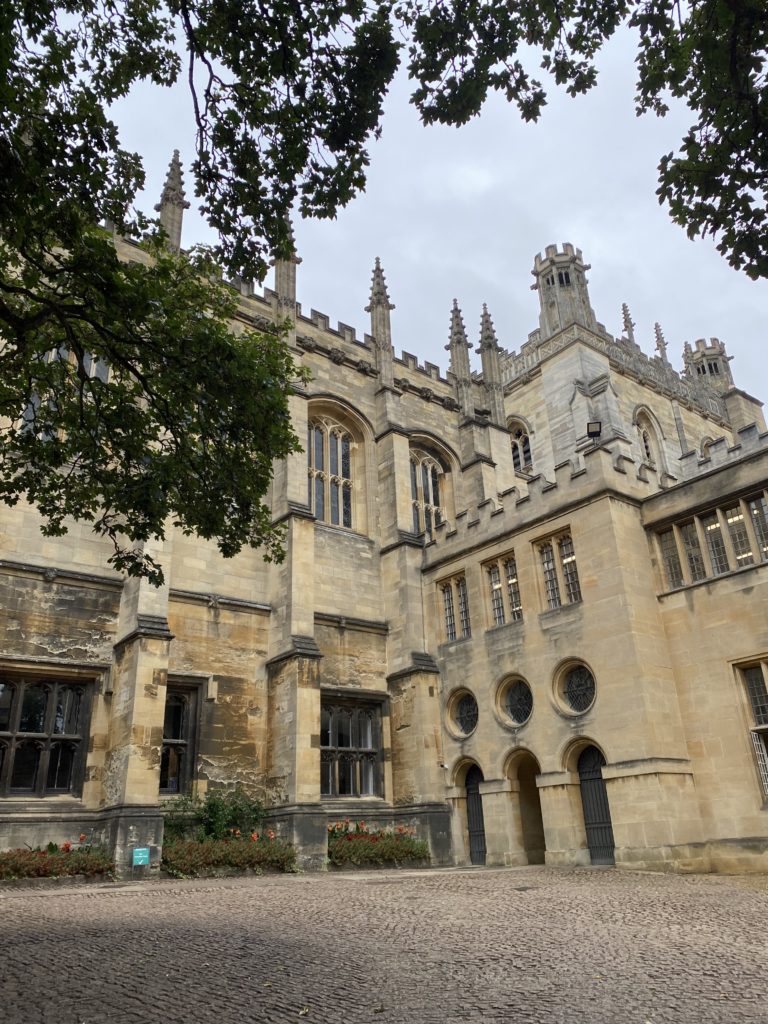
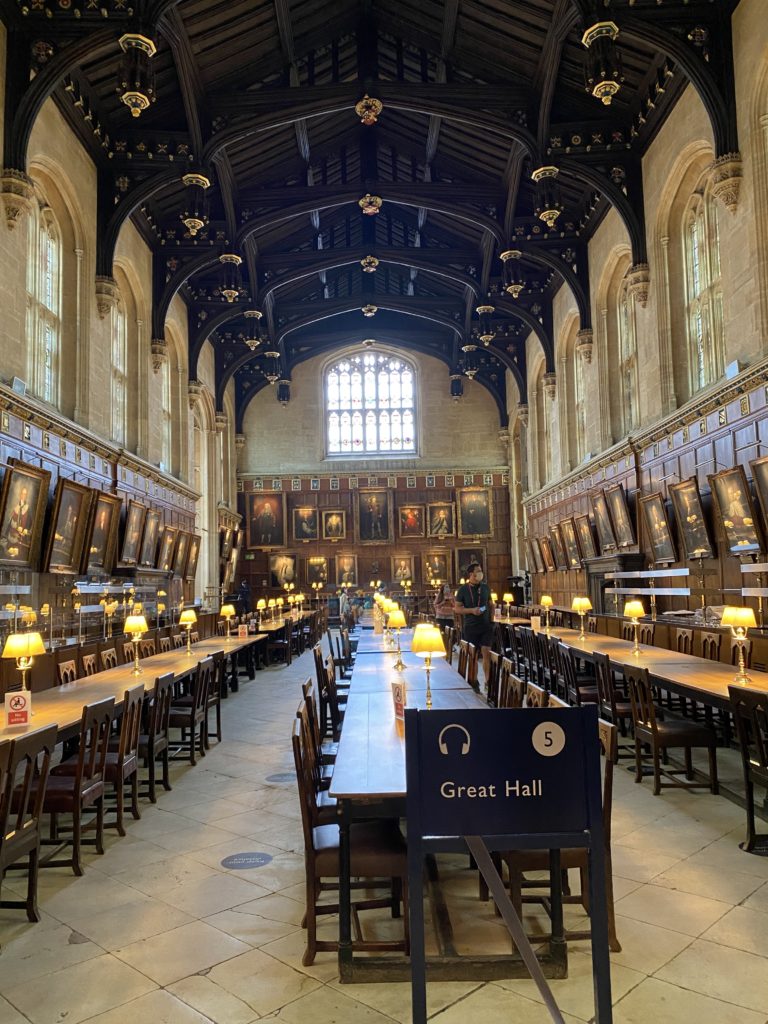
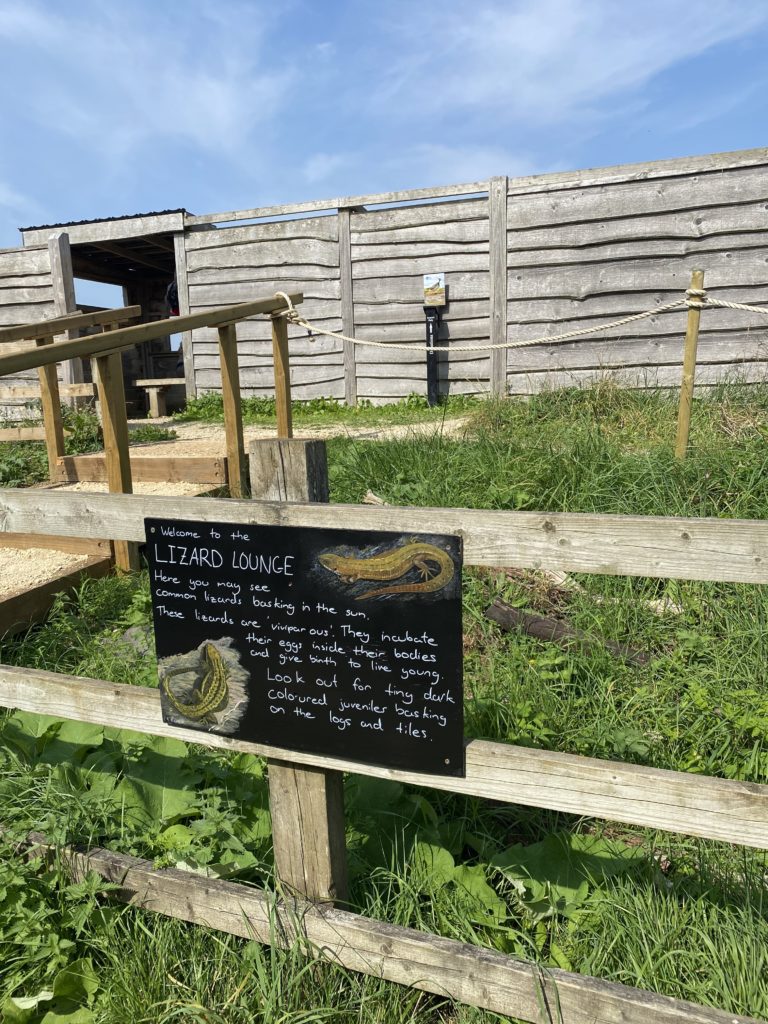
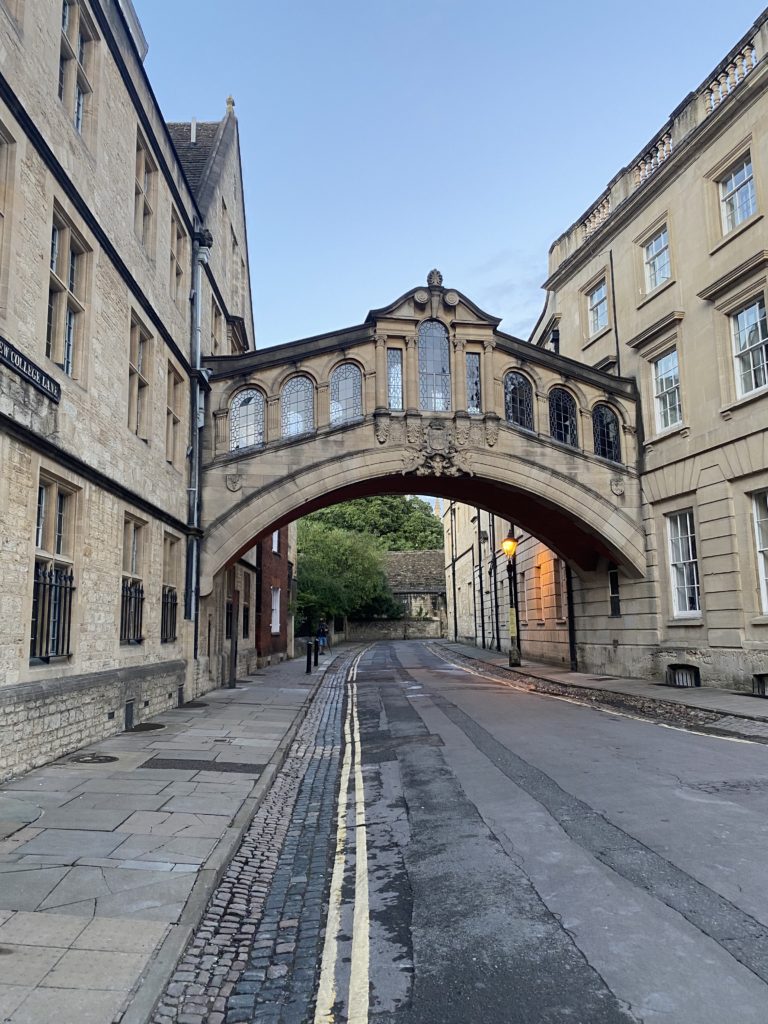
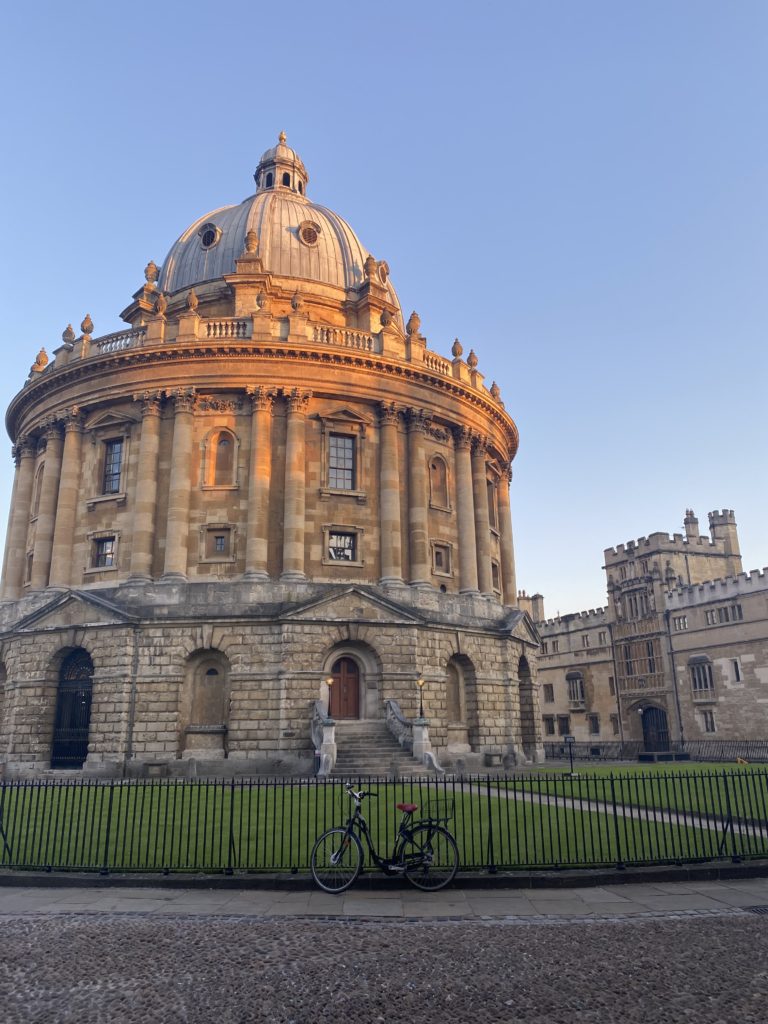
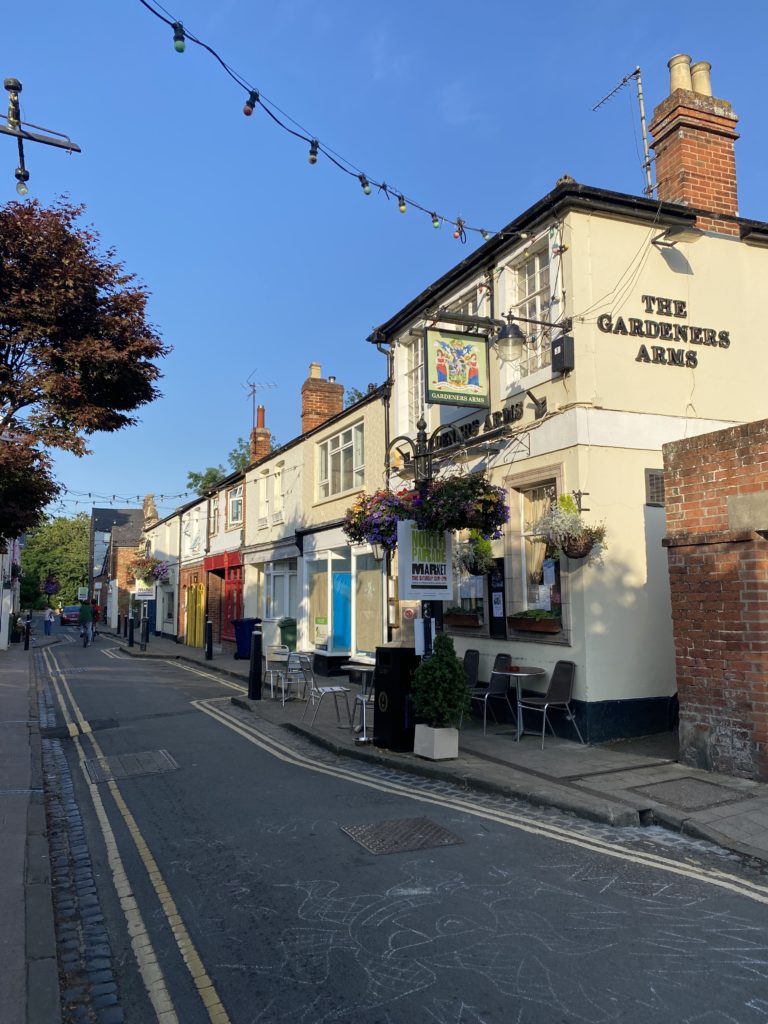
What have you gained from doing your PIPS?
I have learned so much about what the day-to-day job in a technology transfer office entails and the considerations that need to be taken when you want to commercialise an invention, the main one being – there has to be a market for it! I was always involved in a breadth of different projects across life and physical sciences so I even learned about some new science! There was no formal training on this, but I do feel like I have absorbed some project management skills just by being part of the organisation and processes. I also felt like a really valued member of the company, I was given responsibilities from the start and my skills and opinions were sought after, which has been a great confidence boost. I think it’s very easy to feel incompetent during your PhD, especially when you are stuck on an experiment which is not working, so it was good to be in a workplace where I could see how my skills and experience can be applied in a professional setting and bring value.
How would you sum up your PIPS experience?
It has been an incredibly enjoyable experience for me (and I only wish I had more time to be able to see projects through to success as the timelines are so long for most!). I believe the experience I gained will be invaluable in my future career as I was exposed to the different parts of commercialisation and was able to find out which ones I enjoy and which I don’t. Patents are still my favourite! It has been so refreshing to focus my mind on something different, especially after the draining months of doing a PhD in a pandemic. It has broadened my horizons on where my skills and knowledge can be useful by interacting with the commercial side of science.
What advice would you give to other PGRs about PIPS?
PIPS has been an incredible opportunity to learn about an area outside of academic science that I am interested in as a potential career so I would encourage others to seek opportunities that they feel could help them expand their work experience in a relevant field. Or just follow your curiosity if you haven’t quite figured out what you want to go into yet! Outside of this, it has also been refreshing to see that my skills can be very useful in a professional setting and it has made me feel more confident about my place in the job market.
York PhD Students Present Research at ICAR Conference in Belfast
Congratulations to 2nd and 3rd year York PhD students Ethan Redmond and Harry Pink, who presented findings from their latest research at the International Conference on Arabidopsis Research (ICAR) conference in Belfast.
Read moreYork PhD Students Present Research at ICAR Conference in Belfast

